Business & Management
EfD-Uganda Stakeholders Co-Creation Workshop Discusses Clean Energy Solutions for Small Holder Farmers
Published
1 year agoon
By
Jane Anyango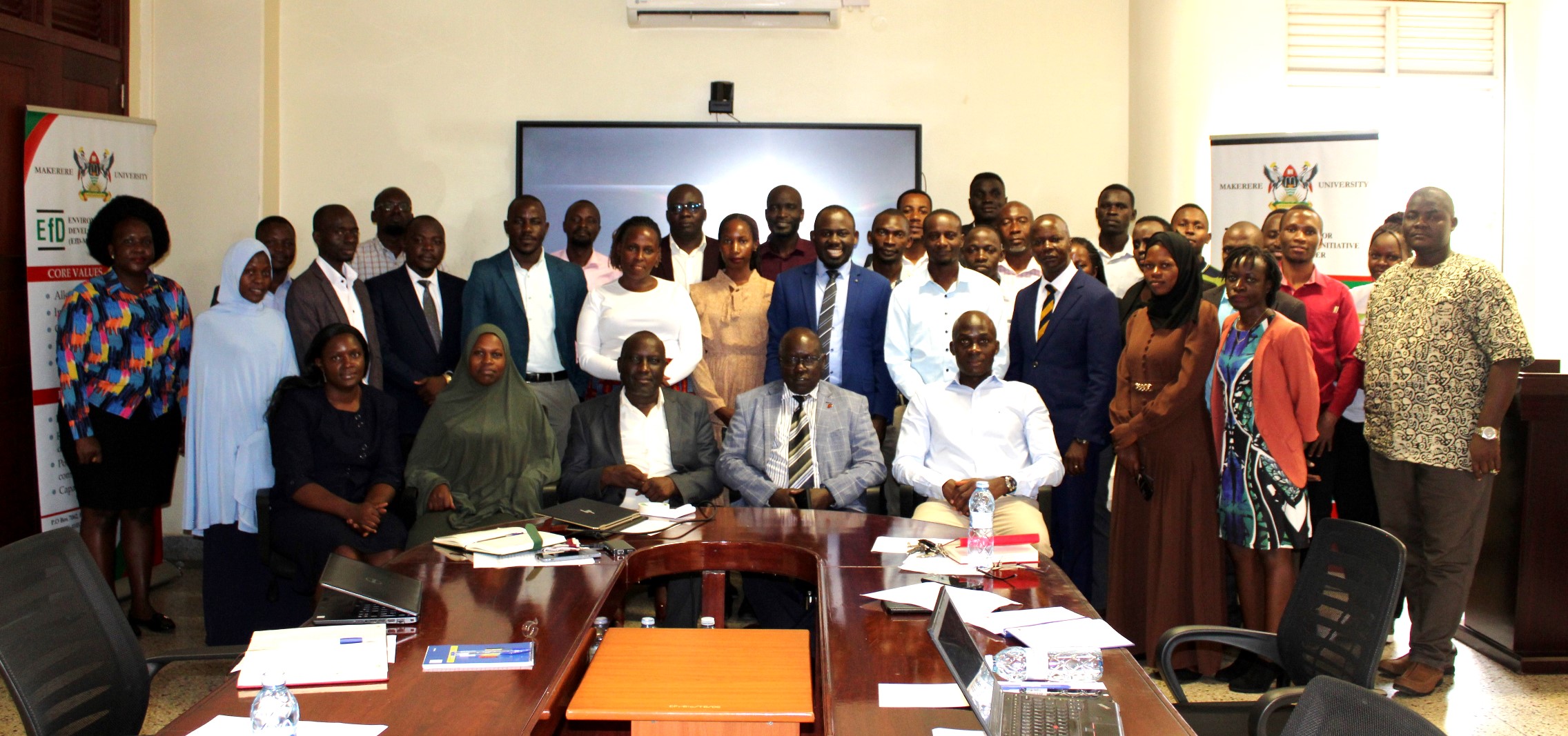
Members of the academia and EfD research fellows on 25th April, 2024 held a co-creation workshop with representatives from government ministries, civil society organization and the private sector to generate a context-relevant Micro, Small and Medium Enterprise (MSMEs)-led model for supporting the transition to low-carbon ag-tech by smallholder farmers.
The EfD in collaboration with Partnership for Economic Policy (PEP) embarked on the study titled, “Clean Energy For Development: A Call For Action (CEDCA): Renewable Energy MSMEs operating to modernize agriculture in Sub-Saharan Africa and South-East Asia: Barriers, opportunities, and implications for an inclusive low carbon transition”
The project funded by the International Development Research Centre (IDRC) is being implemented in four countries namely; Burkina Faso, Kenya, Uganda, and Vietnam.
The EfD-Uganda project team is composed of Prof. Edward Bbaale, who is also centre Director, Dr. Aisha Nanyiti Lecturer, School of Economics, Dr. Florence Lwiza, Lecturer, School of Agricultural Sciences and Gyaviira Ssewankambo, Junior Research Fellow.
The objectives of the study were to establish the barriers and opportunities for the emergence of a vibrant MSME sector to support the use of modern energy technologies in agriculture for inclusion of women and youth in the ag-tech MSMEs value chains and to undertake rigorous tests of context-relevant models to support the transition to low-carbon agricultural technologies.
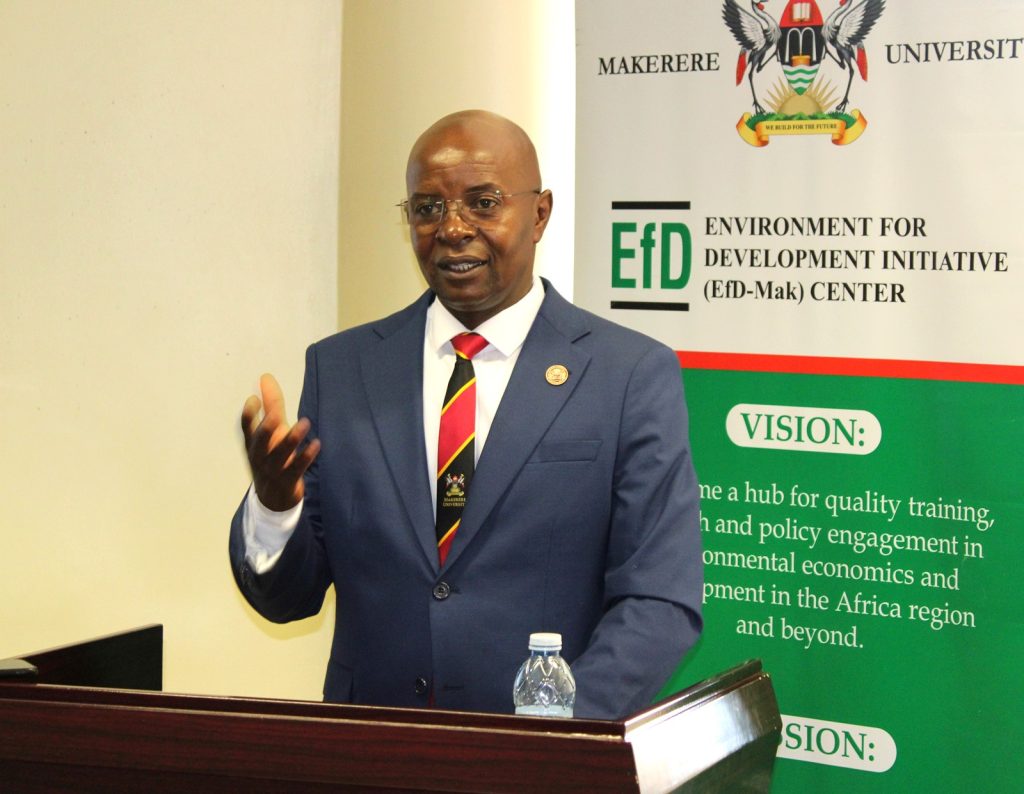
The study undertook a three phased approach namely the Diagnostic, Design and Test phases.
The Diagnostic phase whose findings were presented by Dr. Lwiza Florence sought to understand the state of affairs on the supply side and the demand side of the renewable ag-tech industry in Uganda. Among other things, the diagnostic phase sought to establish the type of ag-technologies supplied by the renewable ag-tech industry, the scale of supply-side players, State of women, youth, and other groups involvement on the ag-tech supply side, the type of ag-technologies demanded and needed by the farmers, the state of women, youth, and other groups involvement on the ag-tech demand side, barriers to up-take of low-carbon ag-techs and opportunities for supporting the emergence of a dynamic MSME-led transition to the use of low-carbon ag-techs.
The Test phase will involve rigorous impact evaluation of an MSME-led model.
In the Design phase, a Co-creation workshop with MSMEs and Stakeholders had a plenary session to generate a context-relevant MSMEs-led model for supporting the transition to low-carbon ag-tech by smallholder farmers.
Participants joined in a discussion on renewable energy projects in their organizations and their experiences with low-carbon ag-techs like solar or hybrid water pumps, batteries, generators, driers, fridges, and millers.
The research team also sought the stakeholders’ opinion about the effectiveness of sensitization programs in advancing the uptake of modern ag-technologies, their opinion of a fairly feasible MSMEs-led model for enhancing smallholder farmers, women, and youth uptake of modern ag-technologies plus any feedback or questions to the research team.
The workshop was officially opened and closed by the Director Directorate of Graduate Research and Training Prof. Edward Bbaale who is also Director EfD-Uganda. Bbaale emphasized the contribution of stakeholders a key to the project success.
“If we must do research that will change our society, then it is you, colleagues, that must work with us. If you don’t agree to work with us, then we shall be developing solutions and developing policy recommendations that will not actually serve the purpose.
And because of that, then we count on you continuously to work together, to craft together, to co-create together so that we can be on the point. We need to work together so that the results that we get and the recommendations can be usable by you, can be acceptable by you, and then in so doing we shall change our society and experience the true socio-economic transformation,” Bbaale stressed that in trying to understand many of the intricate aspects of the society and economy, the centres key focus is to work with stakeholders in government, the private sector and other non-public entities.
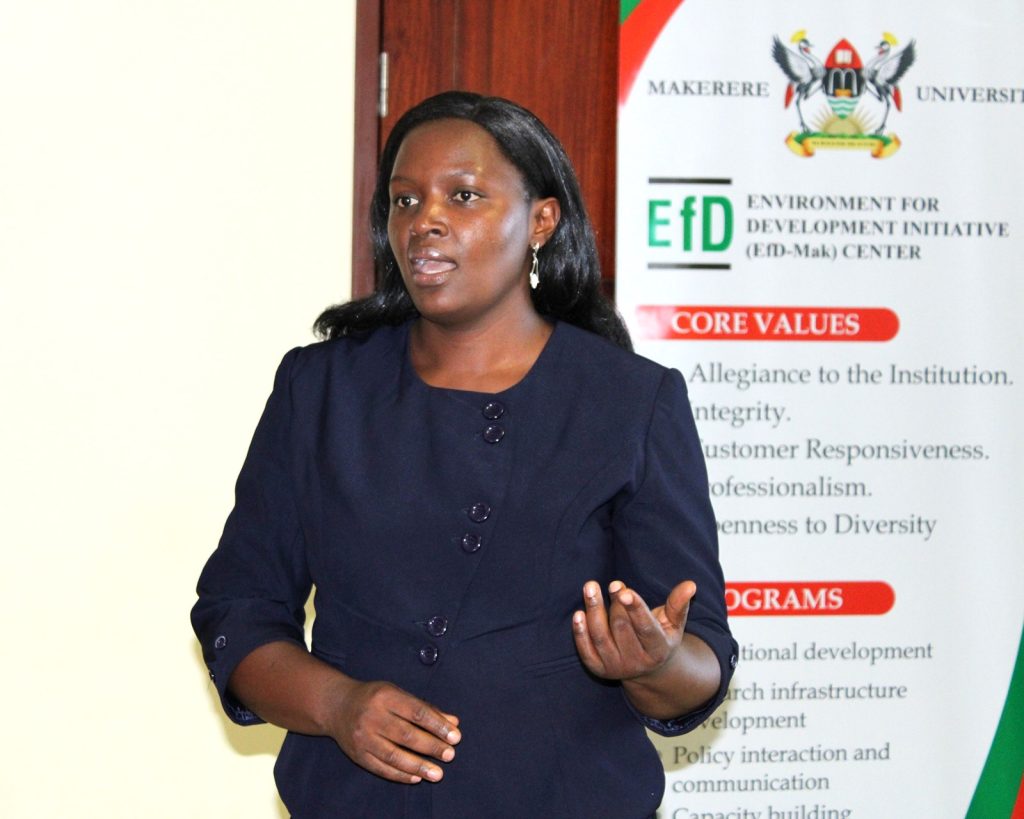
He stated that the issue of green transitions is a global question being approached from different aspects where energy and low carbon solutions occupy a very important space. Commending Government of Uganda for different initiatives promoting use of clean energy, Bbaale expressed the need for agriculturalists and those in the value chain to use renewable energy for production, processing, value addition and marketing.
“So if we are to transit, we must get a solution in terms of energy. We must get a solution for the energy at home, in the workplaces, in the industries and we must get a solution for the energy in the transport sector” he added and appreciated participants for the exchange of ideas especially the number of ideas on what other people are doing as far as SME energy solutions are concerned. He assured participants that in doing research, the center and university are open to ideas, and so was the reason for this workshop.
Makerere University, as an institution, Bbaale explained, is focused to becoming a research-led and innovation-driven institution. And because of that, he added Makerere is looking at research that interrogates into the different technologies and research that lead to new innovations.
“And I want to say that the type of work that we are doing in this research is about the energy solutions as they exist in the small and medium enterprises. And as a result, we are right in connection with you, stakeholders, in an attempt to address the problems that our society faces.”
It is now well known that the world is transiting, but now through the transition to low carbon solutions, research is at the core of what we are, what we must do and where we must go. The country is relying on us”, the professor said.
The approach to research he added is building with colleagues, through collaborations, making sure that the policy actors, the researchers from Makerere, people from government ministries SMEs, civil society, the private sector and others come together to craft a solution that is workable in the real world today.
Presenting the study overview Dr. Aisha Nanyiti explained that Climate change poses significant risks to farming households around the world but the risk is higher for SSA with about 600 million people living in severe energy poverty.
Households, according to Nanyiti, have limited potential to cope with climate risks. While not among the big emitters, Uganda’s climate action contributes to global climate efforts, and reduces the country’s vulnerability to spatial climate change effects, given the limited coping potential.
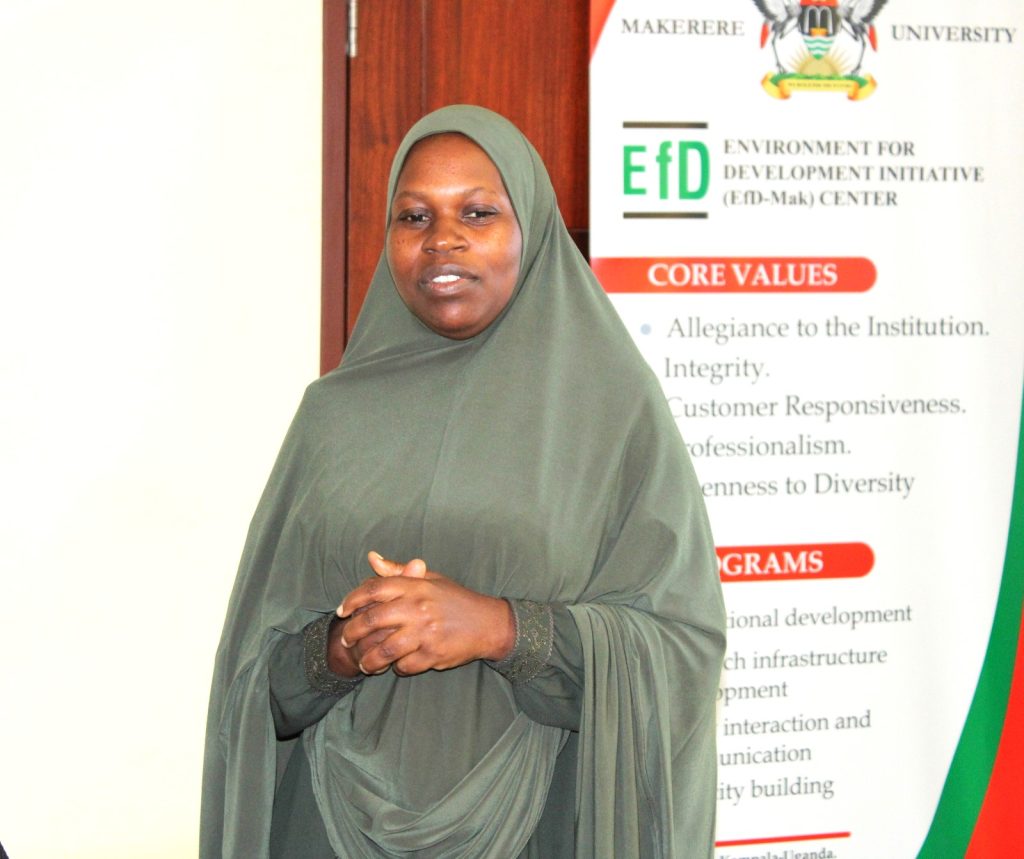
“Uganda’s agricultural sector contributes highest to its emissions and accounts for 53.3% of the GHG emissions. Low-carbon agricultural energy technologies are hence an indispensable fragment of Uganda’s energy transition.
However, the uptake of these technologies is low. Lack of access, affordability, knowledge of alternatives, and financing are cited as the key barriers to uptake”, Nanyiti said.
Dr. Nanyiti further explained that MSMEs can play a central role in driving the uptake of low-carbon ag – technologies. The highest proportion of Uganda’s MSMEs she reported are engaged in the agricultural sector with high potential for involvement of women and youth, potential adopters of ag-tech, and distribution of ag-tech, through innovative business models.
Participants appreciate the project, ready for further engagements
Key outputs from the stakeholders engagement included agitation for sensitization, relating the project to government initiatives and existing legal framework, scaling up the project, learning from other countries what they have done, the need for heavy polluters to pay more, use of carbon credits as incentives to SMEs using clean energy, targeting real users of clean energy and standardization of products to eliminate counterfeits.
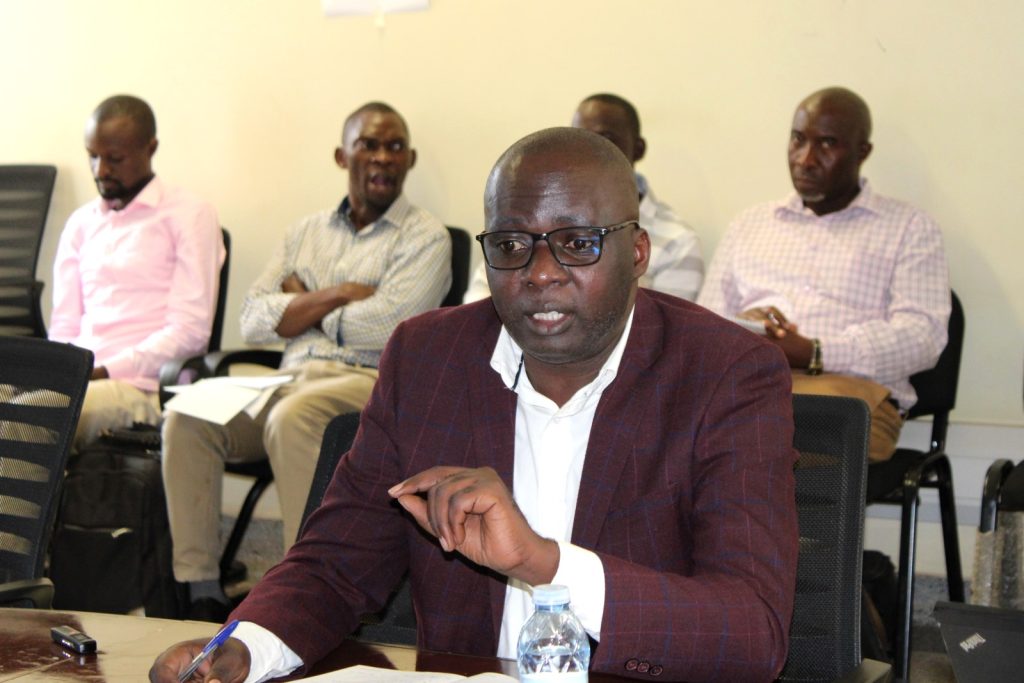
Representing the Assistant commissioner Ministry of Water and Environment Nathan Mununuzi also Senior Environmental Officer, appreciated the project and expressed the need to look at government initiatives in regard to promoting clean energy to safe guard the environment and increasing agriculture productivity.
“I really appreciate so far what has been presented. These are real facts on the ground, and we look forward to further engagements. So far you’ve engaged the MSMEs, but you’ve not had the story of what initiatives government is putting in place in regard to that subject”.
He highlighted some of the government projects including the Uganda Intergovernmental Fiscal Transfer that is supporting farmers with irrigation technologies and promoting solar powered irrigation schemes. Another one is the wetland restoration project engaging and encouraging farmers to voluntarily leave the wetlands, but give alternatives to grow high-value crops and fish ponds on the fringes of the wetlands and a green fund which can support some of those initiatives.
Representing the Commissioner Ministry of Energy and Mineral Development, Micheal Ahimbisibwe a Senior Energy Officer, hailed the project team and implored them to consider numbers and percentages.
“I’m happy with the study myself and I would be very glad to read the detailed report. This was a summary and the summary usually doesn’t give a lot”.
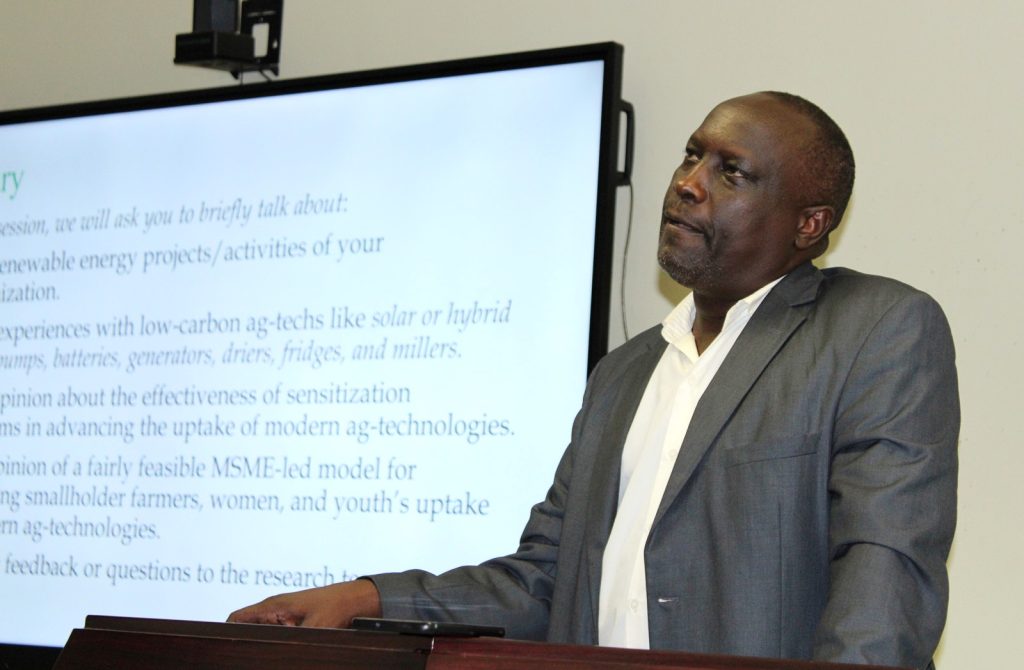
Most of your observations were in terms of, more people agreeing to this, less people agreeing to this. It would do more in terms of percentages and numbers, so that it gives a very good comparison. Because more can be 70, can be 100. And then I think you also concentrated on a few technologies, mainly solar. There are many more technologies out there which are very helpful to agriculture sector than solar itself. Of course, everybody, when we talk about renewable, many people understand solar quickly because that’s what has been flushed into everybody’s mind.
Then there’s also the issue of the life cycle analysis. When we are deploying renewable energy it would be actually also important in value addition. When you are harvesting, you may need energy for harvesting. And I want to see you touching on that part”.
Ahimbisibwe clarified that the ministry designed a project that is supposed help the farmers and the companies have access to affordable financing, which will help them to deploy further and wider. The financing is structured in a way that the company which is dealing in renewable products can access the financing to expand their product line as well as the market range.
With established office countrywide this financing enables famers and SMES, get the renewable energy equipment that they would wish to have and pay back in small installments.
The other drawback was the research concentration in Kampala area, Wakiso and Entebbe which he argued do not have a lot of agricultural hinterland and therefore the agricultural inputs for which these companies are targeting to give out may not be so big. If the research team went out beyond this area, Ahimbisibwe reasoned, there’s more agriculture taking place there which can help the companies to sell much.
Ahimbisibwe reported that recently, government launched a free connections policy and got funding from World Bank to actualize that connection to anybody who is near an electricity pole and has never been connected but is willing.
“You can go and ask in your neighboring office to be connected, or even tell your friends and neighbors because the funding is available. What we are looking for are the people to be connected. But you must get your house wired properly for a connection to take place. But it is a free connection. If you are near a pole or you need one pole to your house, you can use that opportunity.”
And since this is an agricultural symposium, Ahimbisibwe explained it is linked to energy with a component of clean cooking. Uganda according to Ahimbisibwe is highly dependent on biomass for cooking and the Ministry is trying to advocate for alternatives to biomass by making sure that biomass is used sustainably, but also deploying other alternatives into the market such as LPG, ethanol and electricity for cooking.
Assistant Commissioner for Agribusiness in the Ministry of Agriculture Animal Industry and Fisheries Yusuf Ogwang said the use of clean energy is a worldwide initiative which is also being emphasized by government ministries, agencies and departments covering the whole value chain from production to marketing.
Ogwang noted because most of the technologies come from the National Research Organisation, the ministry was encouraging the private sector to produce some of these technologies, that are user-friendly by the farmers, and also that are clean energy.
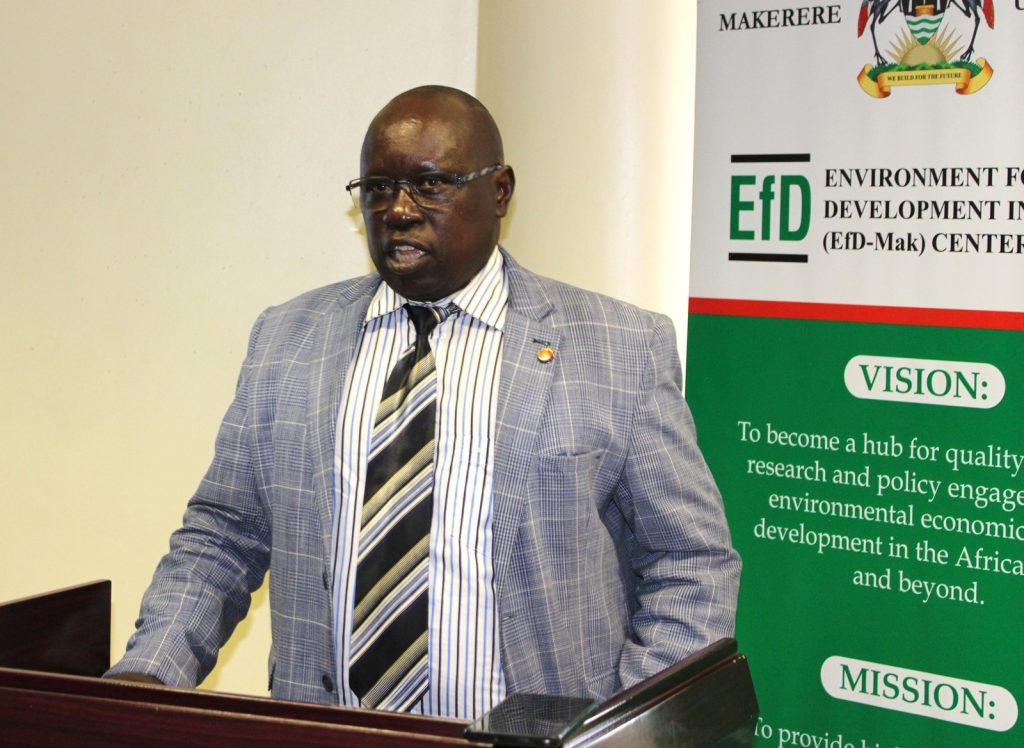
The ministry he said implemented the agricultural transit development project, in production, encouraging farmers in many irrigation sites on the use of solar, renewable energy.
The ministry he added has zoned our agriculture and within each zone there is a center for demonstration picking up and most of the people are using solar for irrigation.
“And also in value addition, we discourage our farmers to use generators. Internationally it is not allowed. So we encourage them to use hydro power and also solar, clean energies. And this has picked up. This project supported so many farmers engaging in production, value addition and packaging”
He reported that government has a big project which is related to this one- the Uganda Climate Smart Agricultural Transformation Project covering about 70 districts all over the country. He called on the EfD researchers to join hands.
“… we should work together because there are so many things that you are doing here that we can borrow from you, and there are so many things that we are doing that you can borrow from us. Because this project is covering the whole value chain, animal, crops, animal stock, livestock, crops, and fisheries. Discovering all those value chains”.
The commissioner added that the ministry is now employing officers that have techniques in soil and land management. The project he said developed climate smart practices in coffee, plantations, and has five enterprises namely rice, beans, coffee, maize, and then cassava discouraging environmental degradation, in the whole value chain, from production up to marketing.
“In addition, the project is going to cover the whole areas of livestock, fisheries, and crop. So I think you are spot on. The only thing I want to emphasize is let’s work together. I think there’s a missing link. There are so many things we can do together so that we develop our farmers.”
Ogwang also appreciated the project presentations.
“I really like the presentation from my sister, Florence. Dr. Florence, you really put everything on the ground. Well put all those challenges, those are the real issues that are affecting our farmers. And then the recommendations, I was very happy with it”
Presentation on the Project overview and Diagnostic phase findings attached.
Jane Anyango is the Communication Officer EfD Uganda
You may like
-


Simplicity, Service & Scholarship: Hallmarks of Professor Livingstone Luboobi’s Legacy
-


EfD-Mak Holds 2nd Advisory Board Meeting: Charts Path for Growth
-


Public University Legal and Accounting Officers Trained on Governance and Compliance
-


Celebrating the Life of Prof. Livingstone Sserwadda Luboobi
-


Fare Thee Well Prof. Luboobi
-


Strengthening Grants Management Through Institutional Collaboration and Capacity Building
Business & Management
EfD-Mak Holds 2nd Advisory Board Meeting: Charts Path for Growth
Published
12 hours agoon
July 18, 2025By
Jane Anyango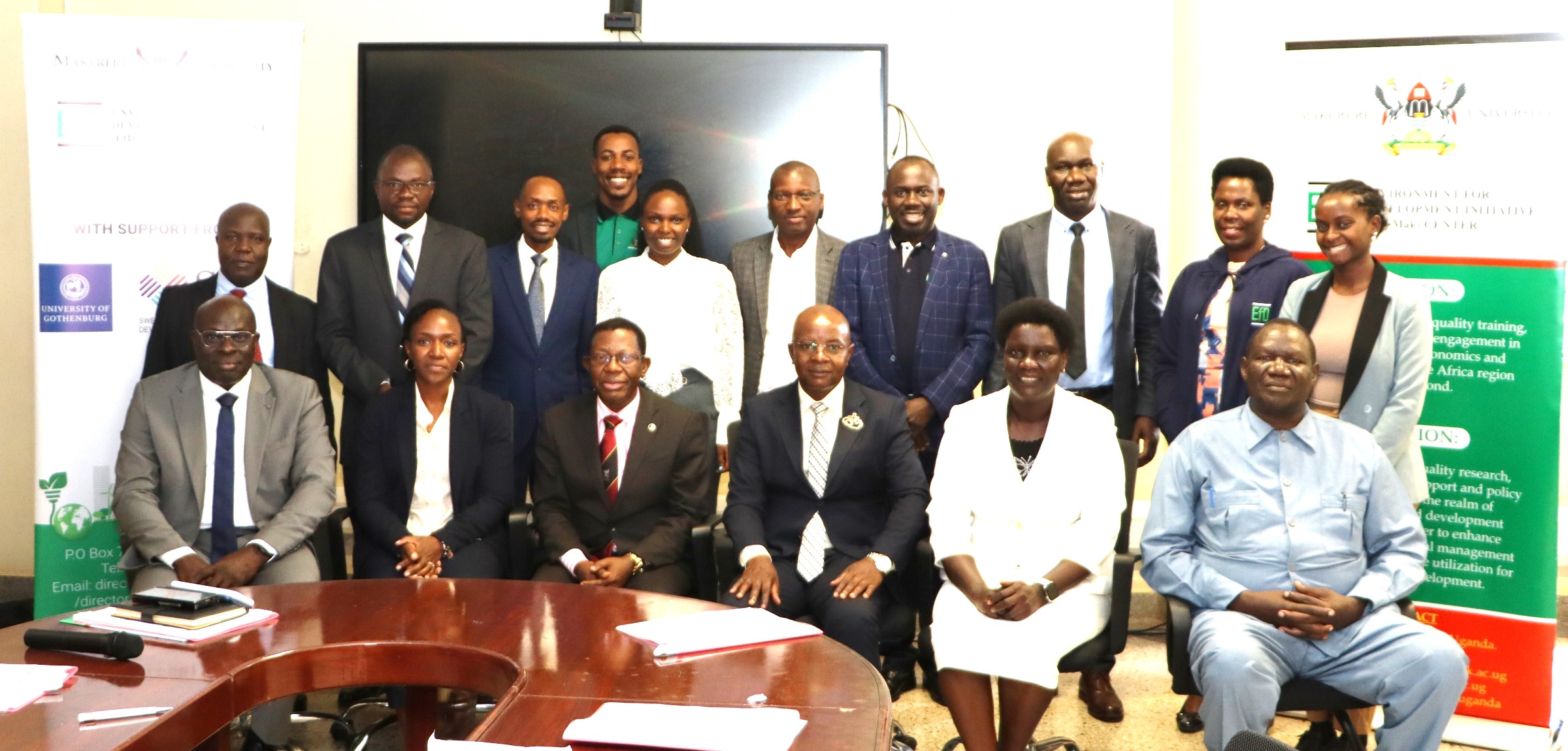
KAMPALA, Uganda | July 16, 2025. The Director of the Environment for Development Initiative–Makerere University Centre (EfD-Mak), Prof. Edward Bbaale, outlined key achievements, challenges, and future plans during the 2nd Advisory Board Meeting held at Makerere University with members calling for expanded scope and sustainable funding for the center’s activities.
The Advisory Board comprises 13 members drawn from Makerere University, government ministries and agencies, civil society, and the private sector. The Board’s role is to provide oversight and strategic guidance to EfD-Mak.
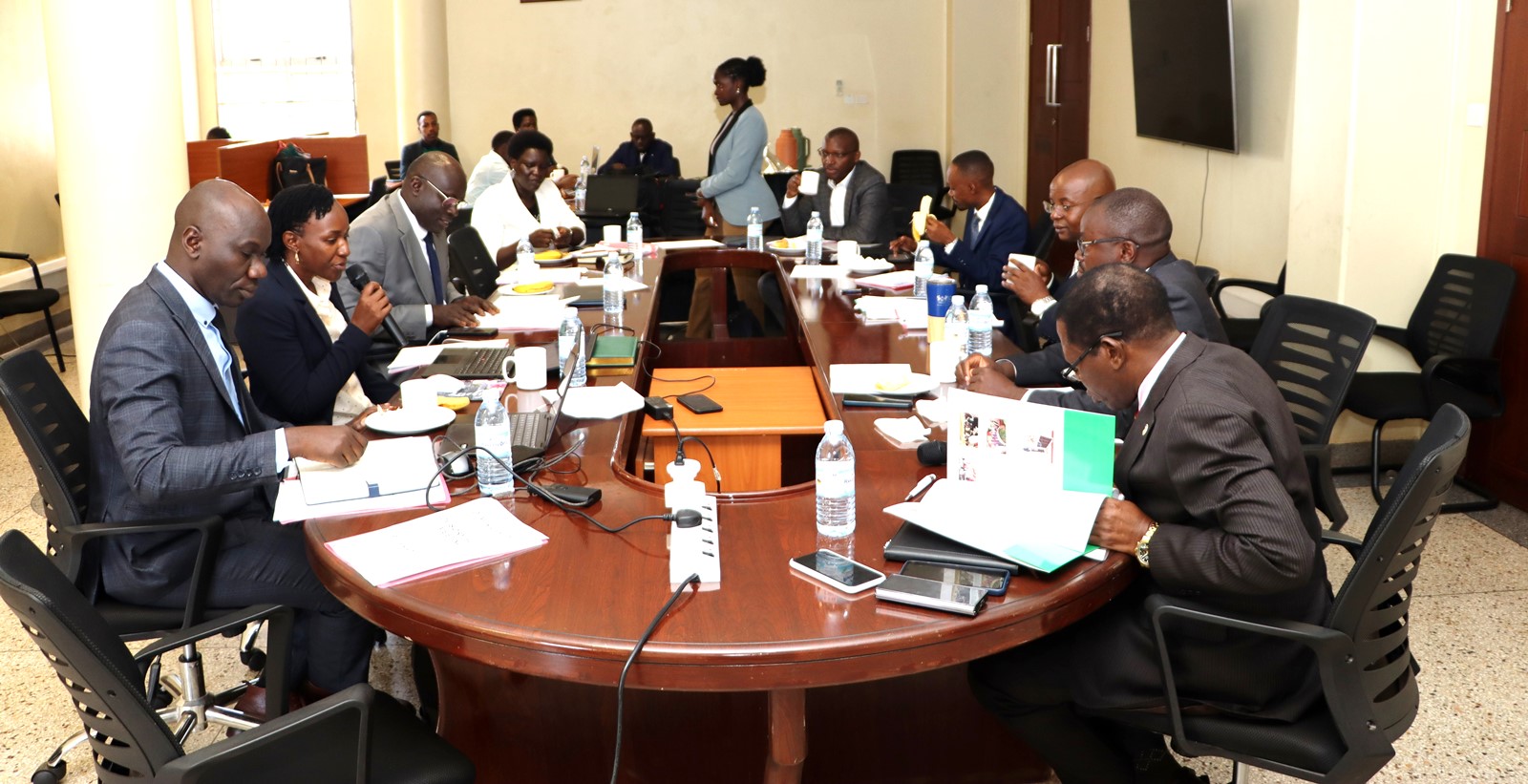
The EfD-Mak Centre is part of the global Environment for Development (EfD) network, comprising 15 research centers worldwide. It aims to promote evidence-based environmental policy through interdisciplinary research, academic training, and stakeholder engagement.
Addressing the board, Prof. Bbaale highlighted the center’s progress since its inception in 2019, including impactful policy engagement, capacity-building programs, and pioneering research in environmental economics.

“Our journey started in Vietnam when Makerere University was formally admitted into the EfD network. Since then, we’ve worked toward a mission of promoting inclusive growth and environmental sustainability,” said Prof. Bbaale.
Chaired by Prof. Buyinza Mukadasi, Makerere’s Academic Registrar and Acting Deputy Vice Chancellor (Academic Affairs), the meeting also welcomed the new Deputy Director of EfD-Mak, Dr. Alice Turinawe, who replaces Prof. Johnny Mugisha.
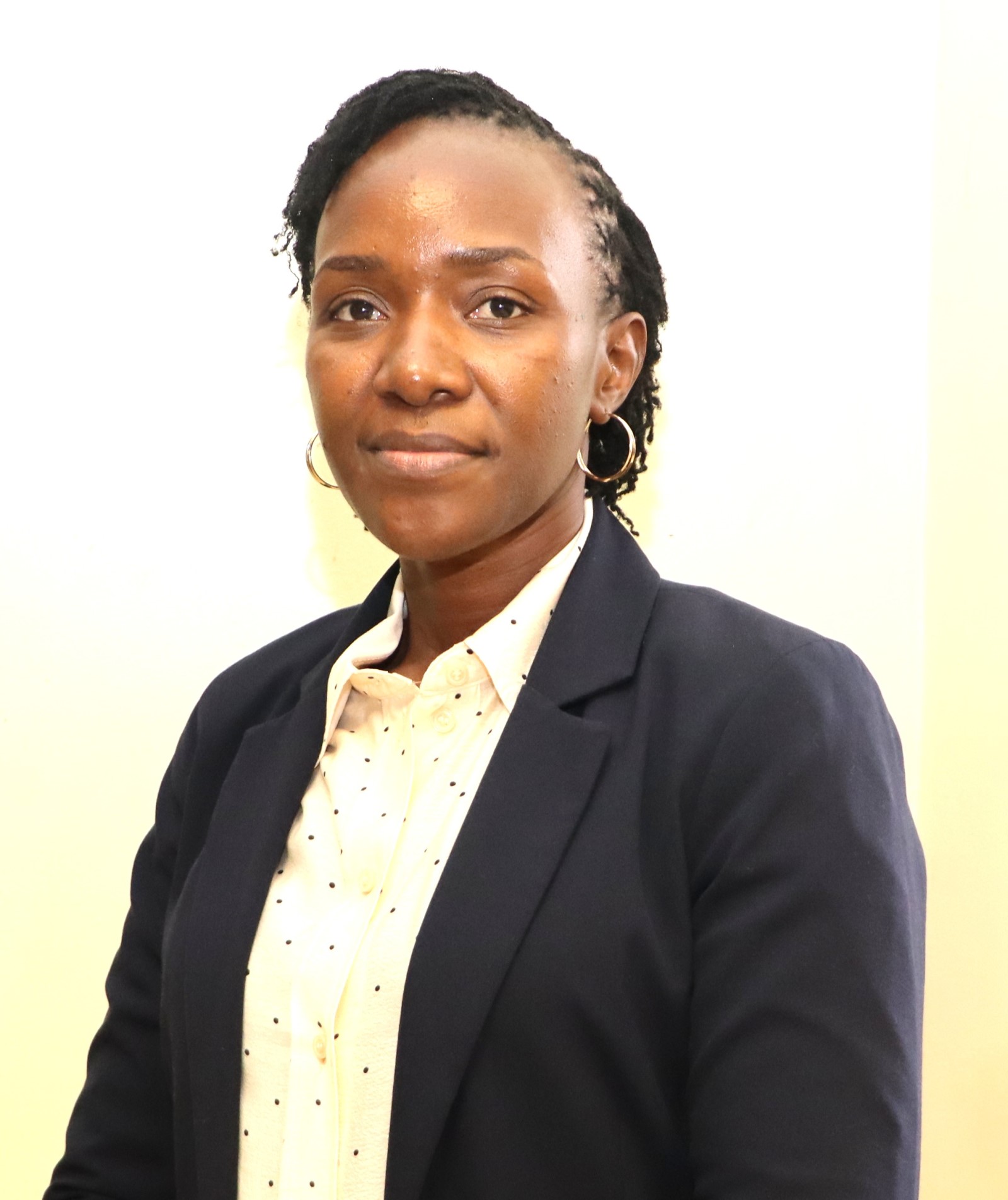
Prof. Bbaale reported significant growth in research output, including over 150 publications and collaborations with national and international bodies such as the National Environment Management Authority (NEMA), the National Planning Authority, and the Ministry of Finance. The center is currently implementing projects on forestry, climate finance, and sustainable agriculture with partners across Uganda and the wider EfD global network.
The center’s interdisciplinary approach, drawing researchers from the Colleges of Business and Agricultural Sciences, was praised for its alignment with Makerere’s research strategy.

Notably, the center has launched a new Master’s in Economic Investment Modeling, designed to integrate climate variables and natural capital into macroeconomic frameworks. “This is a timely addition as the world looks for tools to understand the economic impact of climate change,” said Bbaale.
The center has intensified policy engagements through dialogues and training programs for government officials, focusing on environmental valuation, energy transitions, and macroeconomic modeling. The Inclusive Green Economy (IGE) program, funded by SIDA, has trained senior policymakers across East Africa on sustainable finance and green transition strategies.
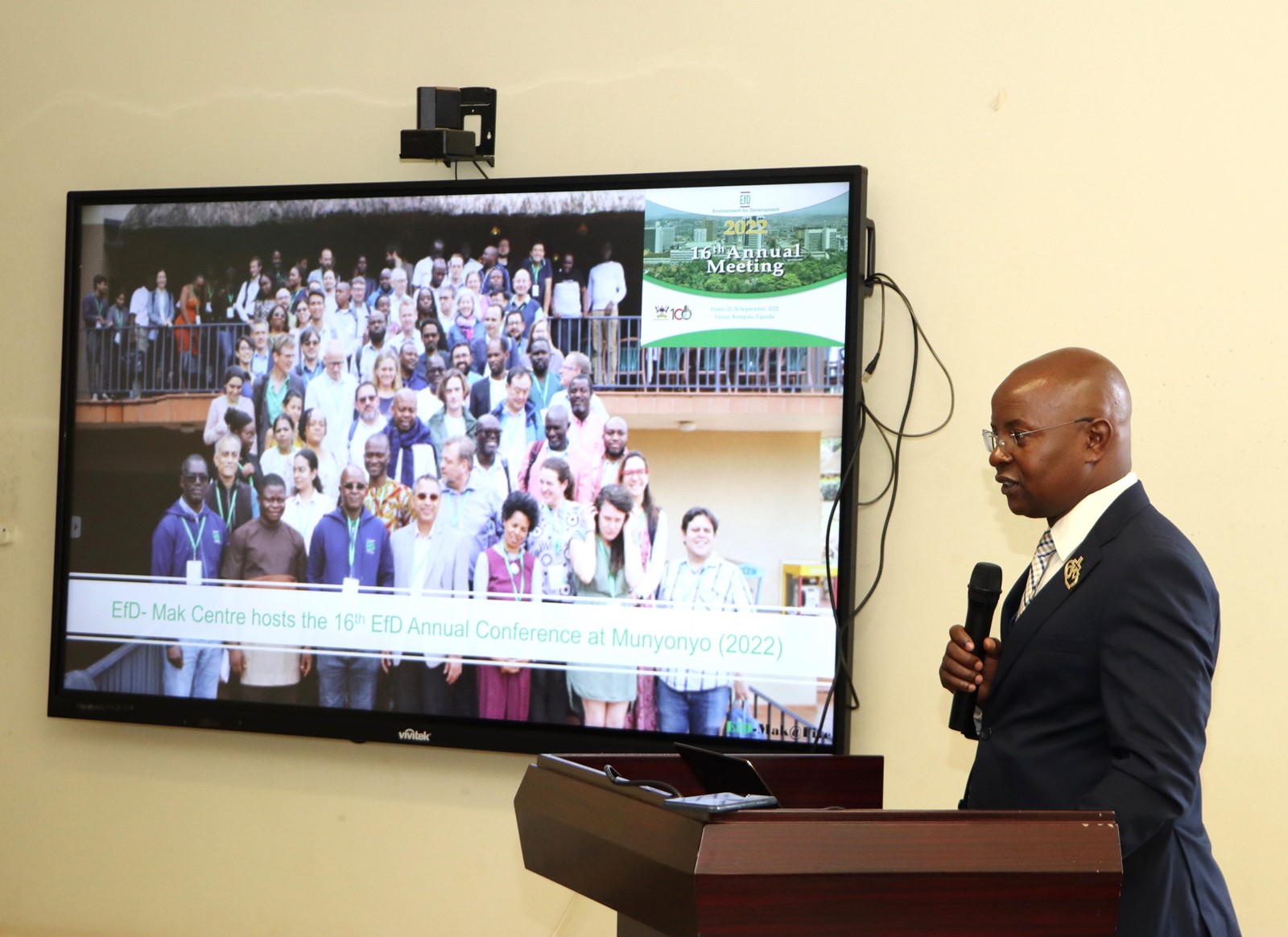
EfD-Mak also played a role in shaping Uganda’s National Development Plan IV, with several fellows contributing to mainstreaming environmental concerns such as clean cooking and e-mobility.
“We were proud to be recognized as a runner-up globally for policy influence on clean cooking,” Bbaale noted, adding that Makerere’s visibility within the EfD network and international platforms continues to grow.

Despite the progress, Prof. Bbaale cautioned against over-reliance on a single funder, the Swedish International Development Cooperation Agency (SIDA), stating that diversified funding is essential for sustainability.
“While SIDA remains our main supporter, we recognize that this model is not sustainable in the long term,” he said, urging the board to support efforts to secure institutional status for the center within the university’s research policy framework.
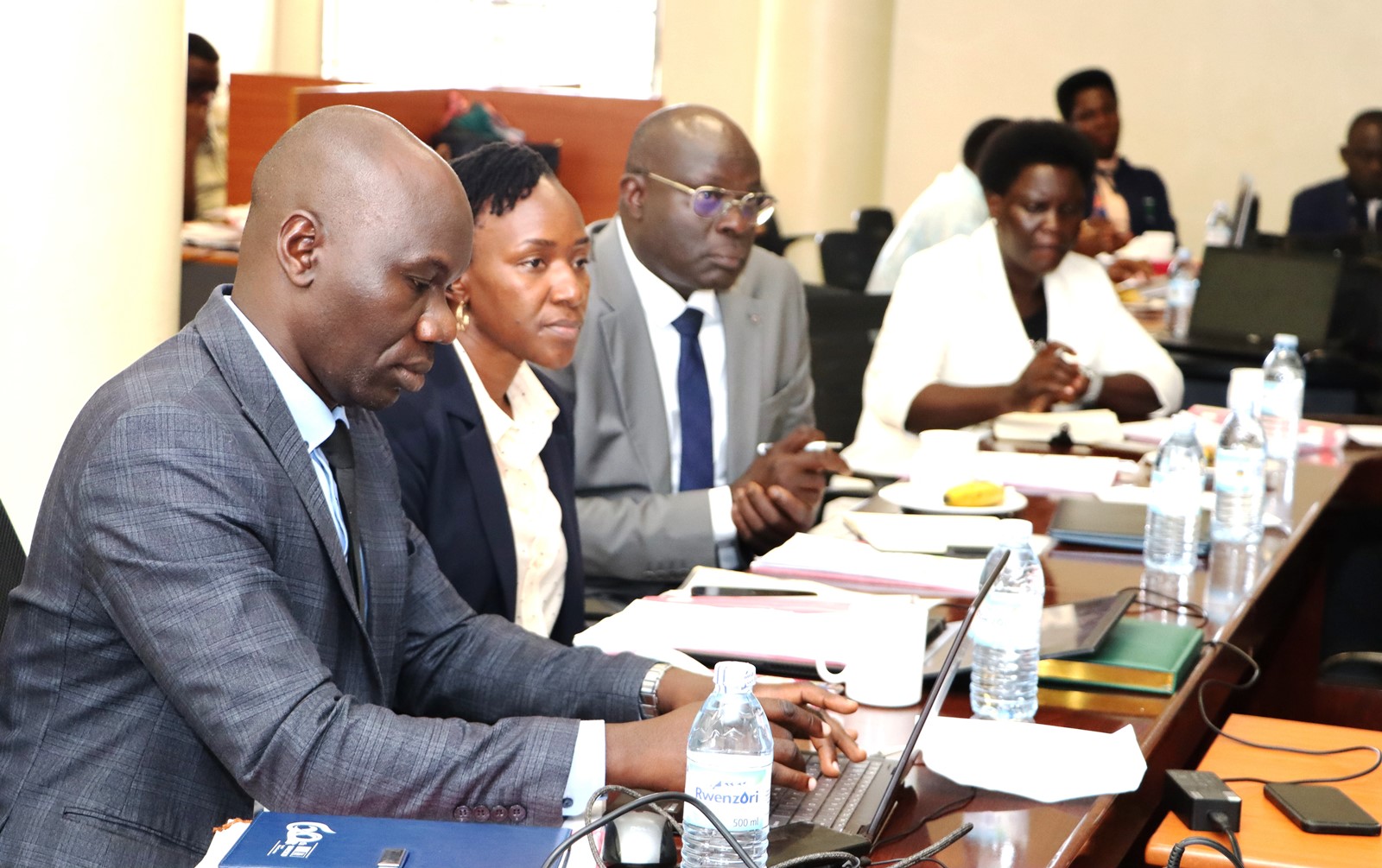
For 2025, EfD-Mak will focus on climate-smart agriculture as a thematic policy dialogue and strengthen its footprint in local government engagement. A grant targeting environmental valuation at the local level and a new project on macroeconomic modeling for climate resilience are expected to launch.
Prof. Bbaale also cited a clean audit and positive external evaluation as indicators of the center’s strong governance and operational efficiency.

Quoting Pope Francis, he closed with a warning on the urgency of environmental action: “God always forgives. Men sometimes forgive. But nature never forgives.”
Board Chairperson Calls for Stronger Alignment with SDGs and Inclusivity in Research Programs
Prof. Buyinza Mukadasi, Chairperson of the Advisory Board called for deeper integration of the Sustainable Development Goals (SDGs), inclusivity, and results-based reporting in the Centre’s research and academic programs.
Prof. Buyinza congratulated the EfD-Mak team led by Director Prof. Edward Bbaale on their notable achievements across academic training, research, and policy engagement.
“We want to congratulate you and your entire team for all the academic and impact achievements you have made,” Prof. Buyinza said. “You can clearly see the success at the academic training level, at the research level, and policy engagement. These are strong pillars of your program.”
However, the Chairperson emphasized the need to explicitly link the Centre’s work to Uganda’s national development agenda and global frameworks.
“What we want to see more of in future presentations is a clear connection to the Sustainable Development Goals,” he said. “Any investment going into research or human capital development must be traceable to the SDGs and the National Development Plan. This is essential, especially when responding to expectations from institutions like the National Planning Authority.”
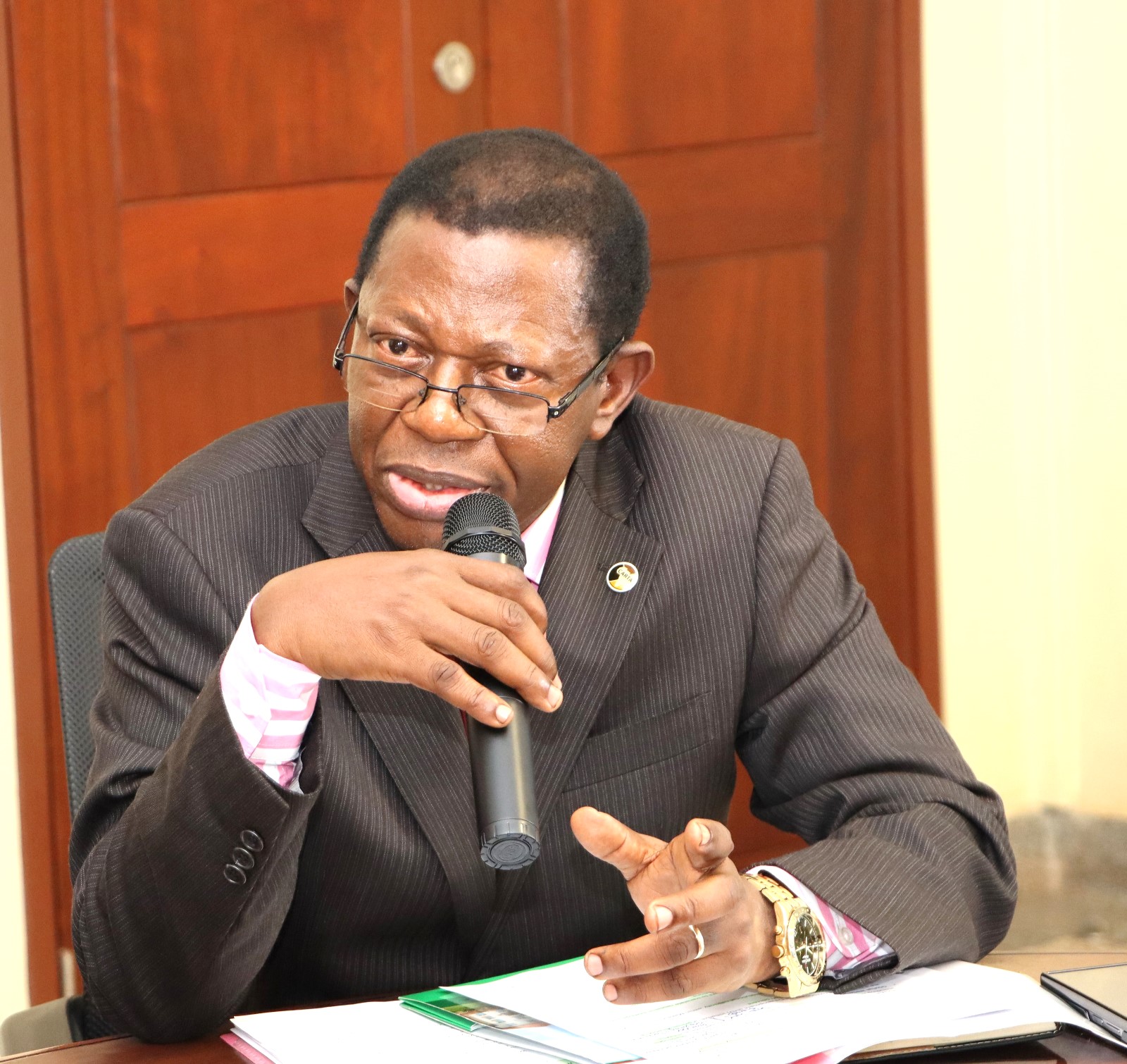
Prof. Buyinza also urged the Centre to enhance inclusivity in its fellowship and research programs by targeting underrepresented groups, including students and researchers with special needs.
“You are doing well with your agenda and research priorities, but now it is time to move further toward inclusivity,” he said. “Let’s also see data on gender representation and the involvement of individuals with special needs. That would reflect equitable capacity development.”
He applauded the Centre’s results-based management approach and its focus on tangible outcomes. “I’m happy you did not dwell on challenges,” he added. “It shows maturity and strategic focus.”
Prof. Buyinza concluded by inviting reflections from other board members on areas where the Centre could improve, encouraging a collaborative approach to continuous development.
Board Members Call for Stronger Private Sector Links, Local Engagement, and Global Positioning for EfD-Mak Centre
Members of the Advisory Board for the Environment for Development Initiative praised the Centre’s achievements in research and policy influence but called for greater integration with the private sector, deeper engagement with local development initiatives, and enhanced visibility on the global stage.
Several board members shared constructive feedback following a presentation by the Centre’s Director, Prof. Edward Bbaale, outlining the Centre’s milestones and strategic direction.
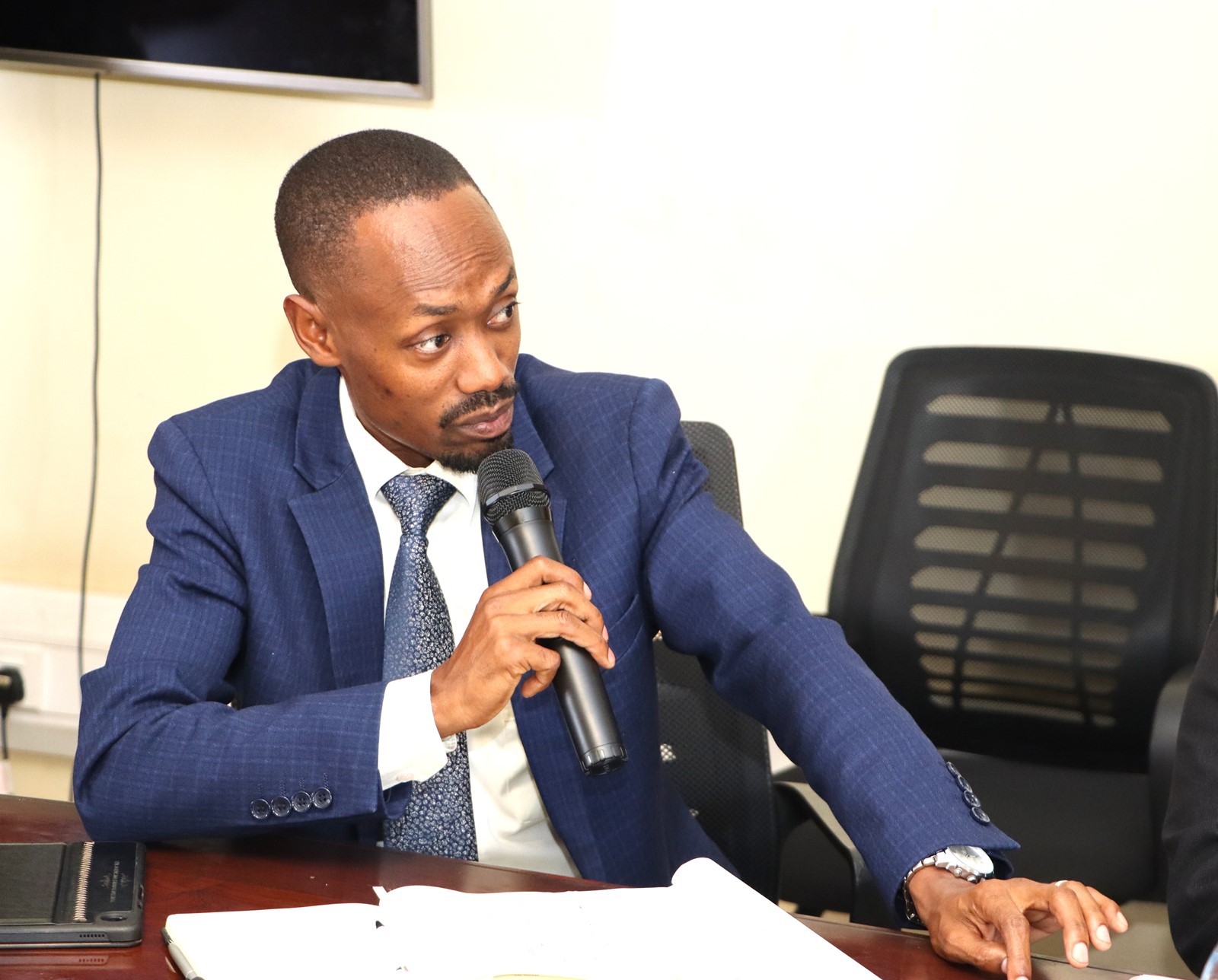
Julius Byaruhanga representing the Private Sector Foundation Uganda (PSFU), applauded the Centre for bridging the gap between academia and policymaking but urged for a similar approach with the private sector.
“Much of the research generated in academia doesn’t speak to private sector investment,” Byaruhanga said. “We need partnerships that show how climate and energy research can guide private sector financing, especially around energy efficiency.”
He proposed collaboration between EfD-Mak and PSFU in energy efficiency and policy advocacy, noting PSFU’s experience with several donor-funded projects and its role as the apex body influencing government policy on behalf of the business community.
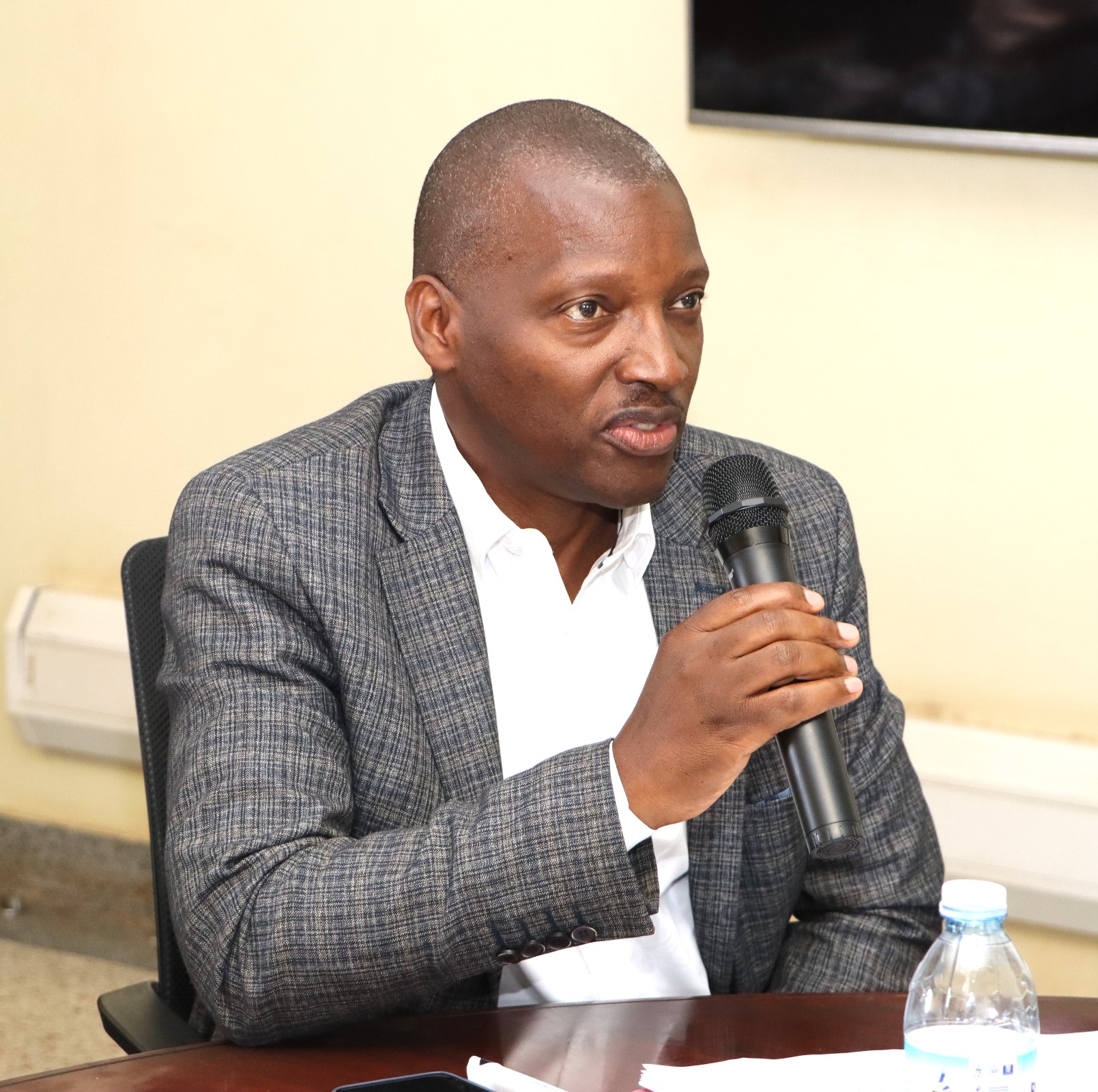
Onesmus Mugyenyi, from acivil society organisation, emphasized the need for coordination among actors working on similar thematic issues, especially in policy advocacy.
“When we don’t coordinate, we duplicate efforts and end up with incomplete or stuck projects,” Mugyenyi said. “Mapping stakeholders and integrating practitioners into training would greatly enhance both policy impact and student learning.”
He also stressed sustainability and advised leveraging the Board’s networks to support resource diversification and long-term institutionalisation of the Centre’s initiatives.
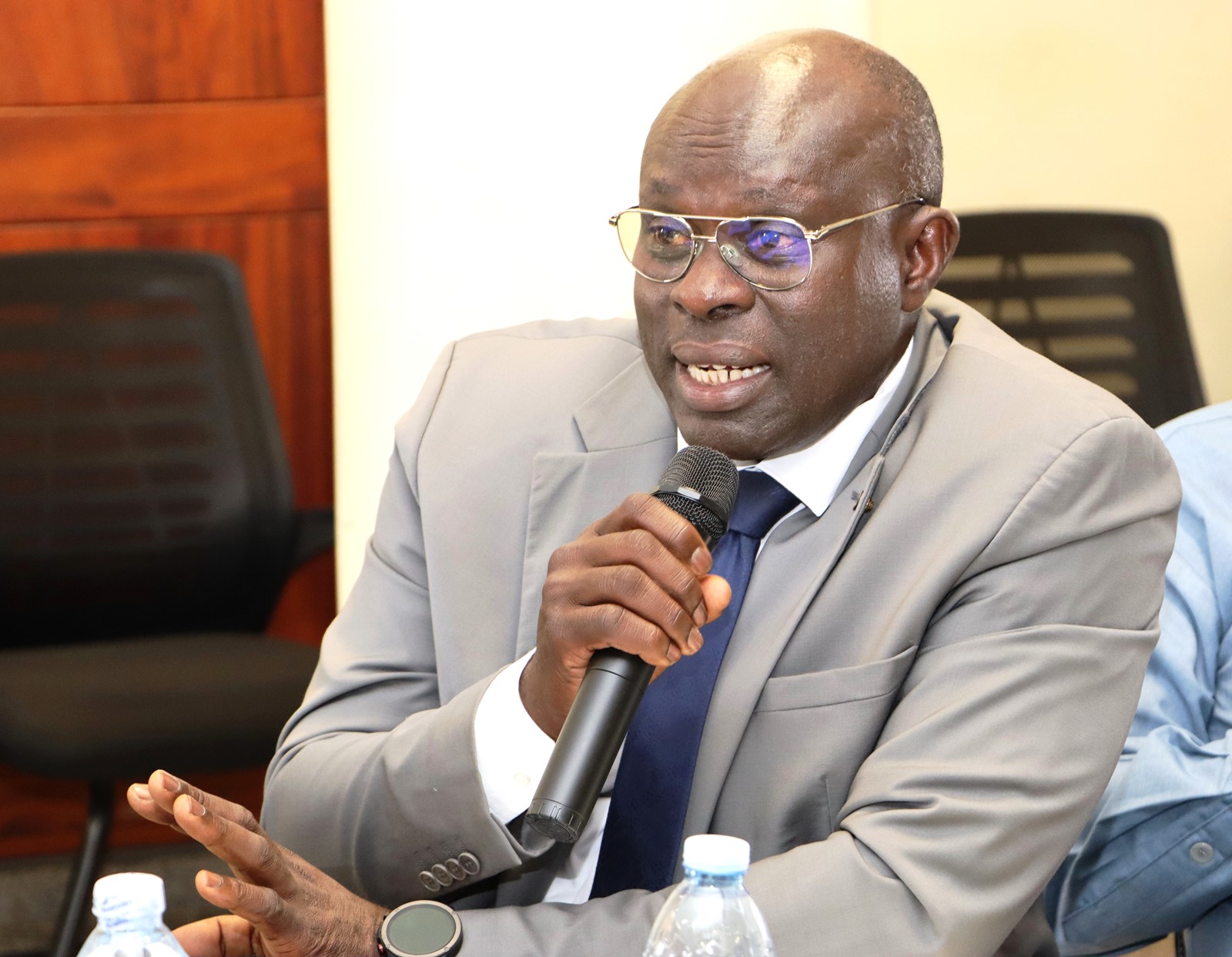
Dr. Sam Mugume, representing the Ministry of Finance, recognized the Centre’s contribution to national capacity building, particularly in climate finance and macroeconomic modeling.
“You’re doing important work,” Mugume said. “But we now need to scale up and integrate your training and modeling capacity into broader macroeconomic planning for climate resilience, both nationally and at the African continental level.”
He noted the Ministry’s current engagement with a coalition of African finance ministers on climate action, urging the Centre to establish itself as a key academic partner in that process.
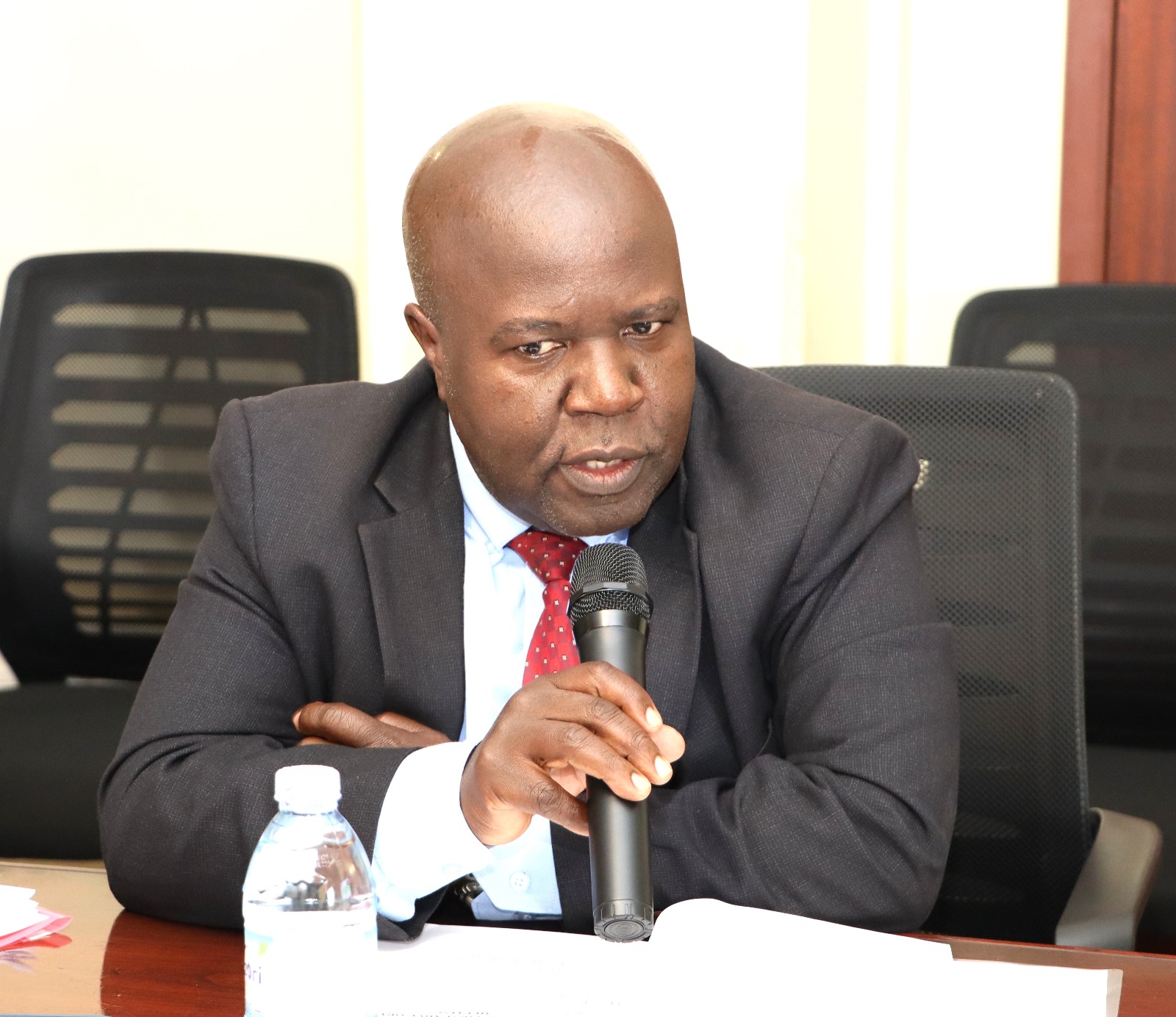
Apollo Kagwa, from the National Planning Authority (NPA), commended the Centre for its academic rigor but highlighted the need for grassroots relevance.
“EfD-Mak still operates at a high level,” Kagwa observed. “We need to bring its research down to address real issues in communities—how does it inform programs like the Parish Development Model (PDM)?”
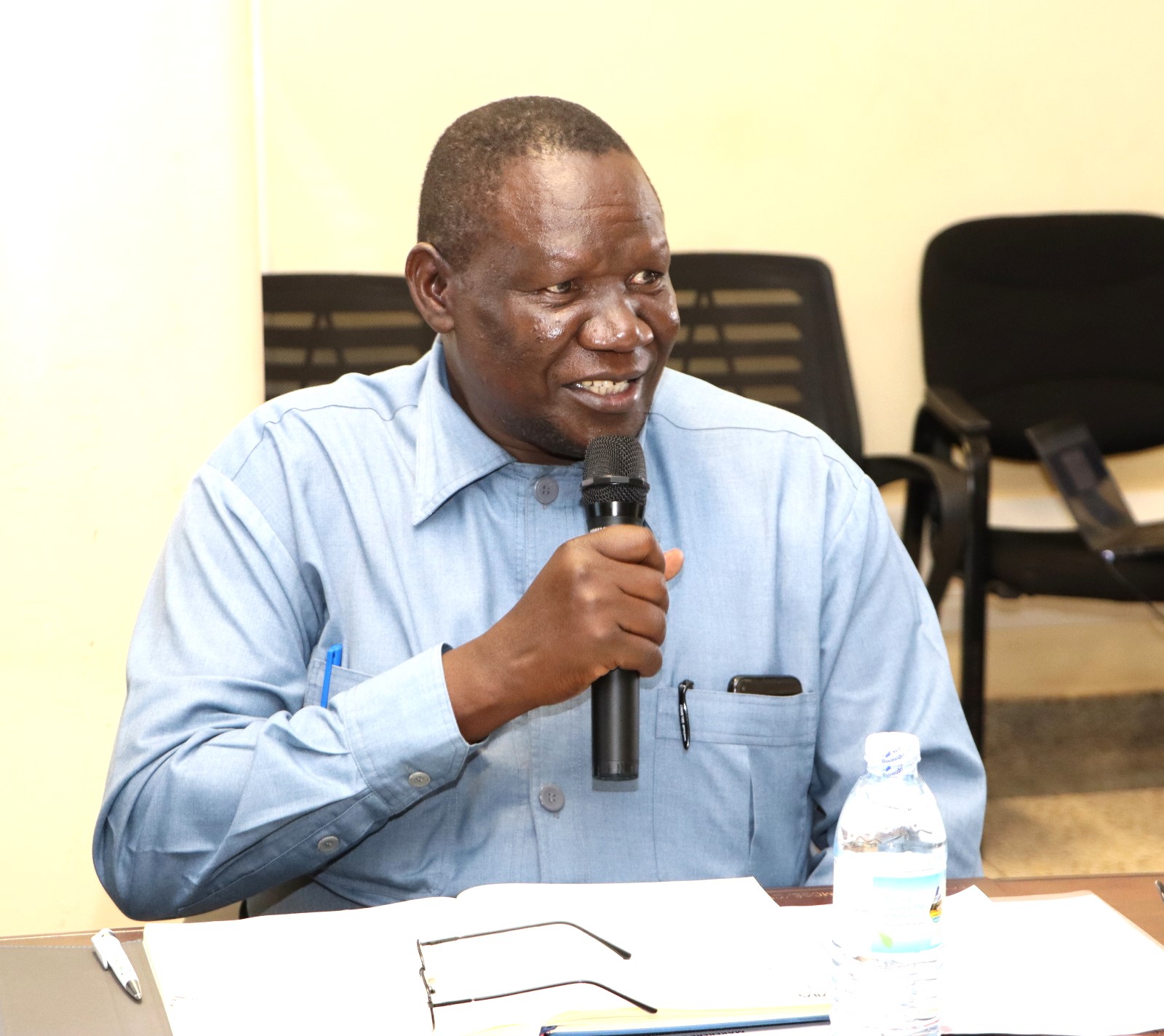
He proposed the Centre tap into government consultancy opportunities and leverage alumni networks to generate internal revenue. Kagwa also encouraged participation in global climate policy spaces, such as the upcoming COP meeting in Brazil, and to develop capacity in climate economics.
Chairperson Prof. Buyinza Mukadasi welcomed the feedback and praised board members for offering actionable insights.
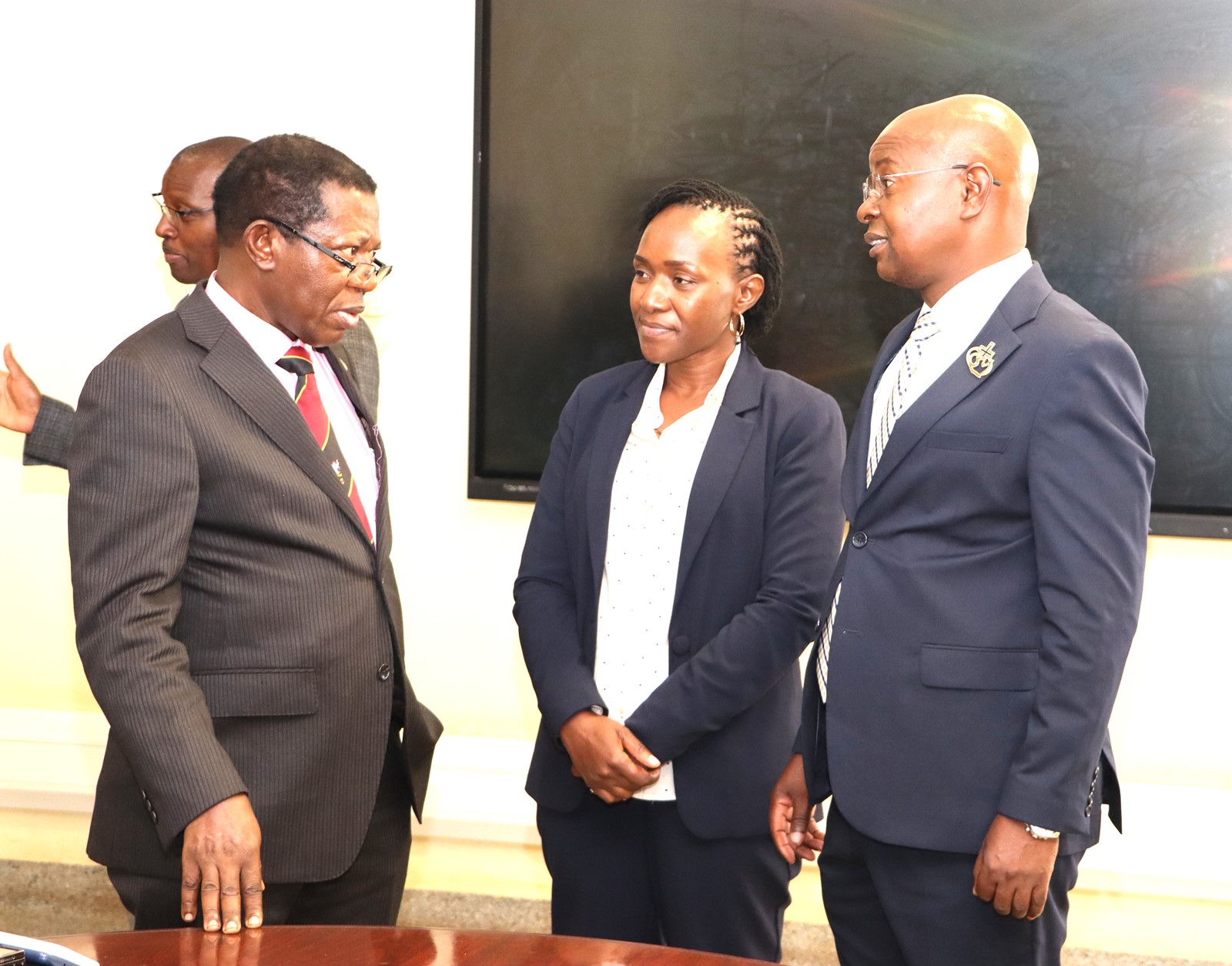
“These are excellent observations,” Prof. Buyinza said. “The next phase must involve deepening our links with the private sector, coordinating better with government and civil society actors, and preparing to expand our impact from local to global levels.”
Jane Anyango is the Communication Officer EfD Uganda.
Business & Management
Makerere’s PIM Centre Concludes Training on Certificate of Financial Implications (CFI)
Published
7 days agoon
July 12, 2025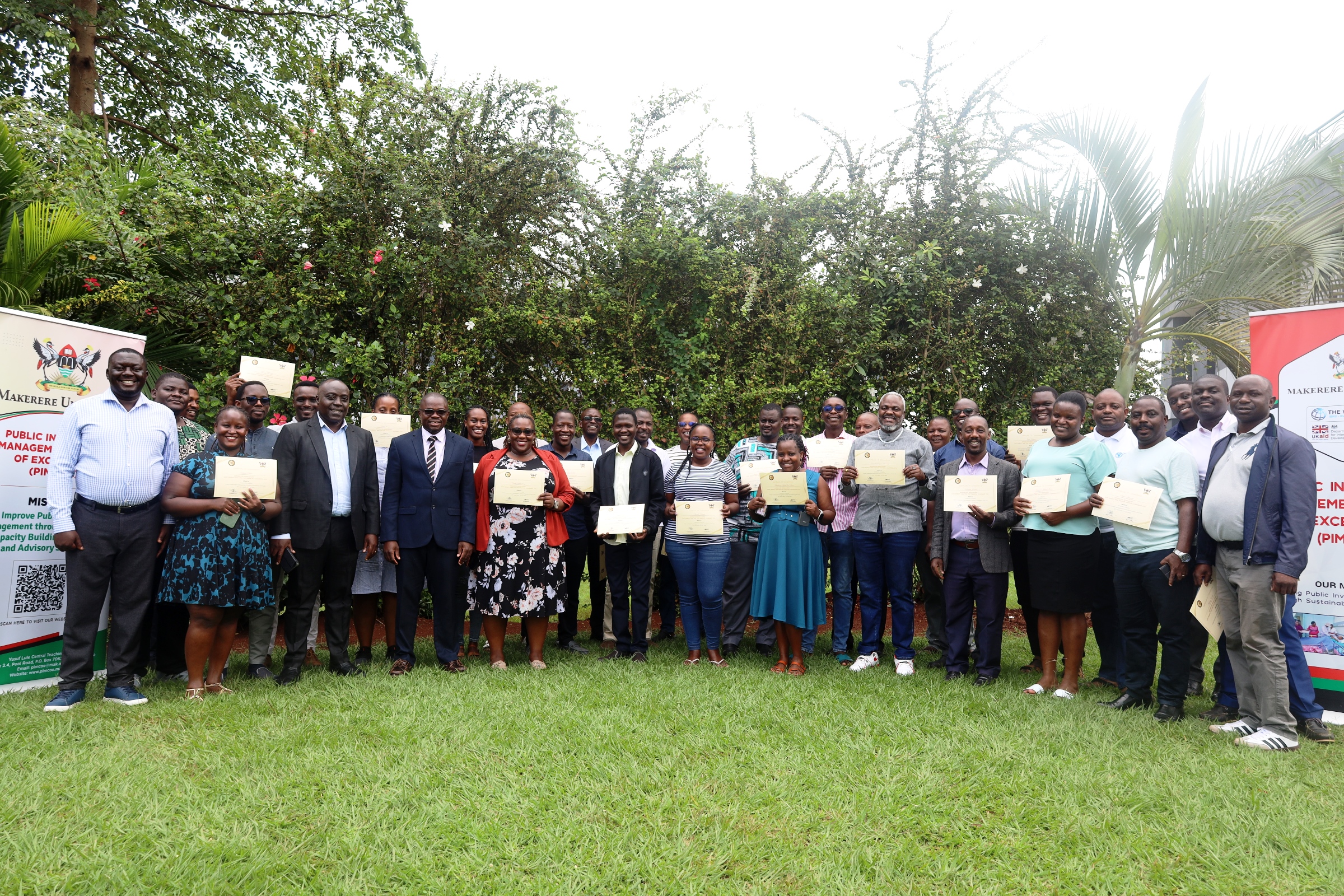
July 11, 2025 | Jinja, Uganda
The Public Investment Management (PIM) Centre of Excellence at Makerere University successfully concluded a two-week training on the Certificate of Financial Implications (CFI) – Integrated Regulatory Cost-Benefit Analysis, equipping 34 economists from various Ministries, Departments, and Agencies (MDAs) with critical policy evaluation and fiscal analysis skills.
The closing ceremony, held at the Pearl on the Nile Hotel in Jinja on July 11, 2025, marked a significant milestone in Uganda’s public finance management reform agenda. Participants received certificates in recognition of their commitment and newly acquired competencies under the revised Guidelines for Financial Clearance, which took effect on July 1, 2025.
Commissioner Paul Mwanja, who represented the Permanent Secretary and Secretary to the Treasury, officiated the ceremony. In his remarks, he commended participants for their dedication despite the demanding timing, coinciding with the financial year-end and the launch of the Fourth National Development Plan (NDP IV). He emphasized that the training comes at a critical moment as Uganda enters a growth-focused fiscal year and prepares for the 2026 general elections.
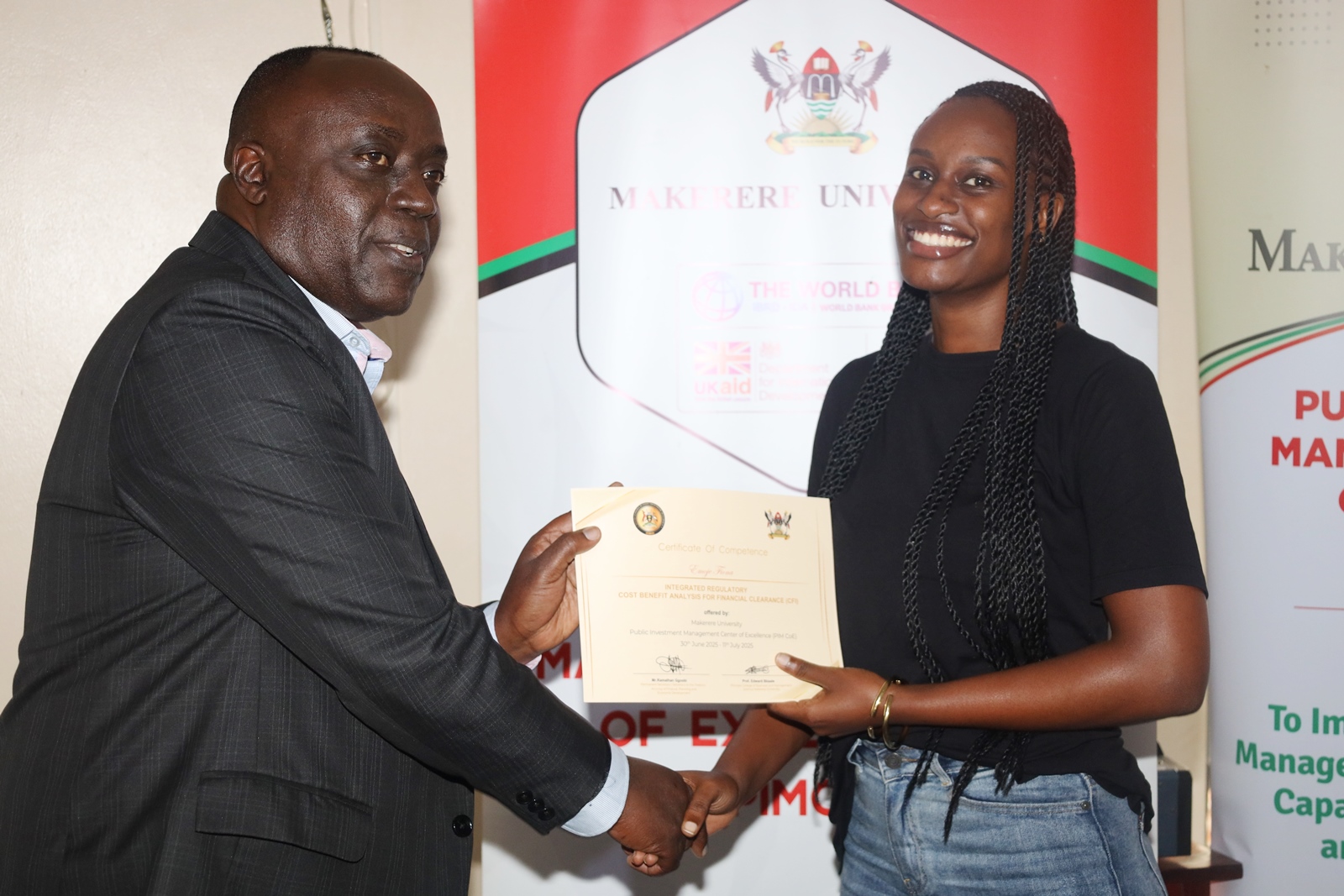
“The Revised Guidelines for Financial Clearance mark a paradigm shift towards a more data-driven, transparent, and inclusive approach to policy and legislative evaluation,” Mwanja stated. “You are the first wave of reformers. Go back as champions, create demand for quality analysis, and drive the change we want to see.”
The CFI training was designed to deepen participants’ ability to assess the financial and economic implications of government proposals, identify potential winners and losers, and design safeguards for vulnerable groups. It also aims to strengthen MDAs’ capacity to prepare their own Statements of Financial Implications and align with Regulatory Impact Assessments.
Representing the PIM Centre, Prof. Ibrahim Mike Okumu, Dean of the School of Economics at Makerere University, lauded the Ministry of Finance, Planning and Economic Development (MoFPED) for its foresight in establishing the Centre in 2023. He described the training as a powerful response to Uganda’s triple policy challenge: scale, scarcity, and speed.

“This certificate program doesn’t just teach you to ask if a project is beneficial,” Prof. Okumu said. “It trains you to assess whether it is beneficial, affordable, and resilient in real-world fiscal contexts. That is how we build trust in public spending and deliver smarter infrastructure, services, and jobs.”
Prof. Okumu also charged graduates to apply their skills at project, portfolio, and policy levels—prioritizing value for money, institutionalizing evidence-based decision-making, and mentoring future cohorts. “Go forth and make every shilling count,” he concluded.
The Ministry announced that the next CFI training cohort will commence in August 2025, as part of a nationwide rollout to ensure all government institutions are staffed with analysts capable of implementing these reforms. The long-term goal is to establish a government-wide foundation of professionals committed to fiscal discipline, data integrity, and evidence-based policymaking.
The event closed with optimism and a renewed commitment to strengthening Uganda’s public finance systems through knowledge, rigor, and reform-minded leadership.
Business & Management
School of Business Conducts Strategic Leadership Training for Makerere University Managers
Published
2 weeks agoon
July 8, 2025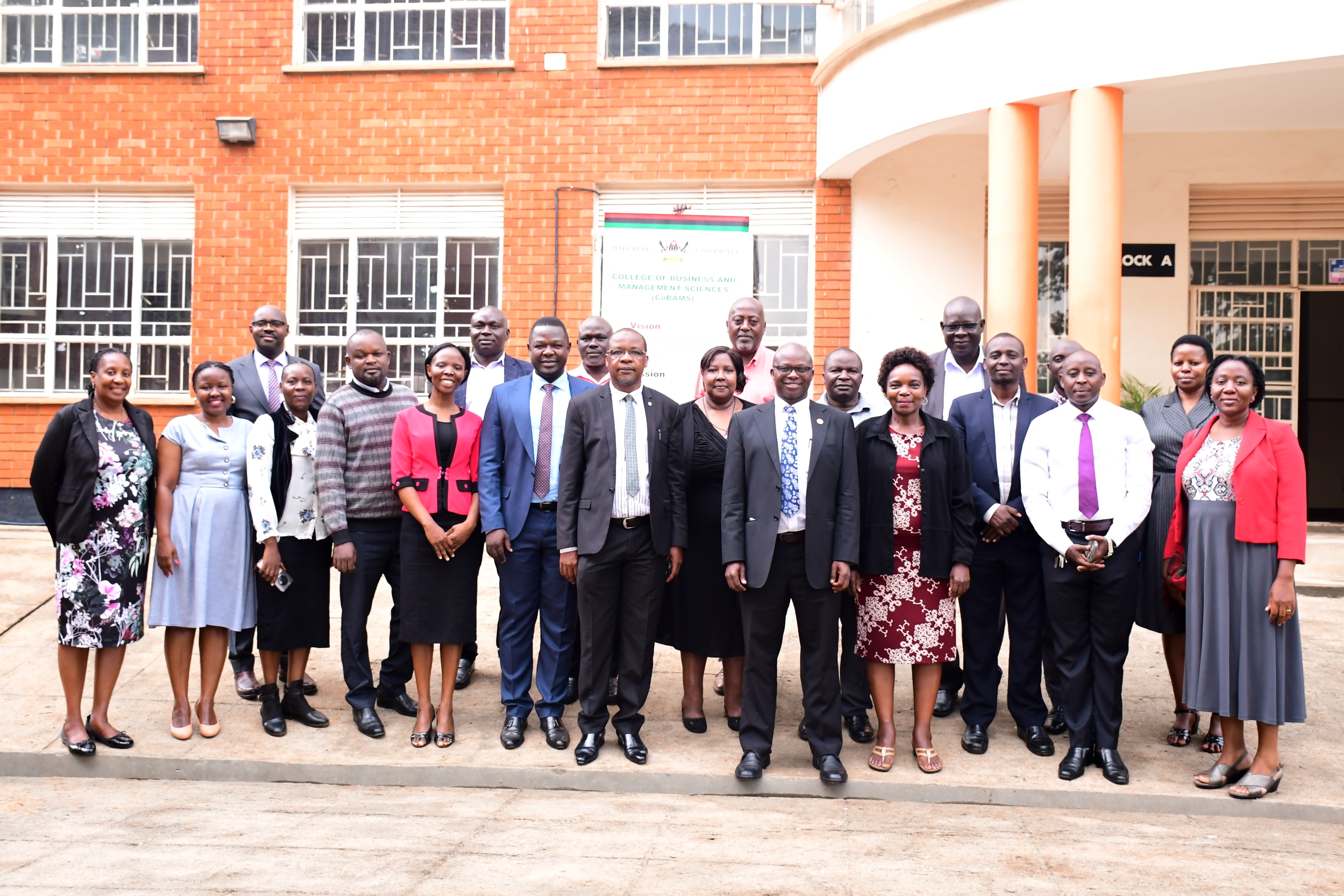
Makerere University School of Business under the College of Business and Management Sciences (CoBAMS) is conducting a five-day strategic leadership training for the first cohort of University managers.
The Executive training (7th to 11th July 2025) for middle and top level managers seeks to foster leadership capacity in line with the University’s strategic goals. The participants nominated from the different units within the University include: Deputy Principals, Deans, Heads of Departments, and Heads of sections in Administrative Units.
The Strategic Leadership course covers critical areas such as Strategic leadership overview and contemporary issues, Driving strategic leadership to promote organizational performance and success, Leading people in Organizations, Organizational culture and productivity, Strategic Communication, and Organizational change and development.
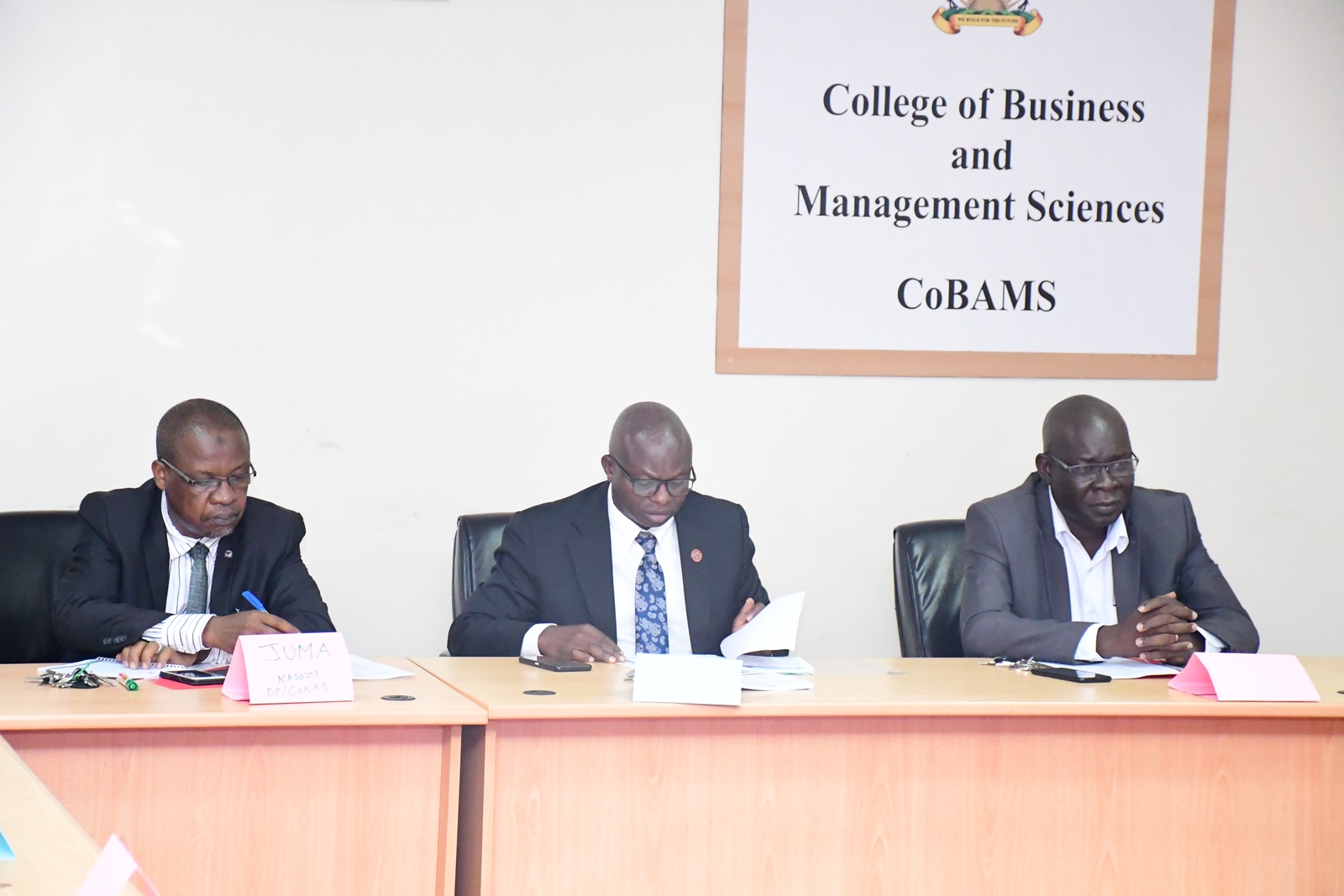
The course is delivered by seasoned facilitators from the School of Business, the private sector, industry and business community namely Associate Prof. James Wokadala, Associate Prof. Godfrey Akileng, Dr. Martin Bakundana, Dr. Sam Eyamu, Dr. S.B. Wanyama, Ms. Irene Nayera, Mr. Henry Rugamba, and Mr. Ronald Bbosa.
Addressing the participants, the Dean-School of Business, Associate Prof. Godfrey Akileng pointed out that learning was a continuous process, stating that the training was aimed at fostering professional leadership development and lifelong learning.
He elaborated that the training brings on board university leaders who are entrusted with managing people. Emphasizing that people are the most important resource in an organization/institution, the Dean highlighted the need to train and equip those managing offices, with strategic leadership knowledge, skills and values.
Unpacking the concepts of leadership and management, Associate Prof. Akileng revealed that most organizations need leaders, and not managers. In light of this, he stated that most business schools in the world were emphasizing leadership more than management. He explained the paradigm shift from traditional management practices to leadership-focused training, with a special call to leaders to always adapt and navigate complex organizational environments.
The Principal of the College of Business and Management Sciences, Prof. Edward Bbaale, represented by the Deputy Principal-Associate Prof. James Wokadala underscored the College’s pivotal role as a hub of excellence in Business, Economics, and Management. The Principal highlighted the growing significance of strategic leadership in today’s academic and professional landscapes, noting that even seasoned leaders must continue evolving in their leadership practices.
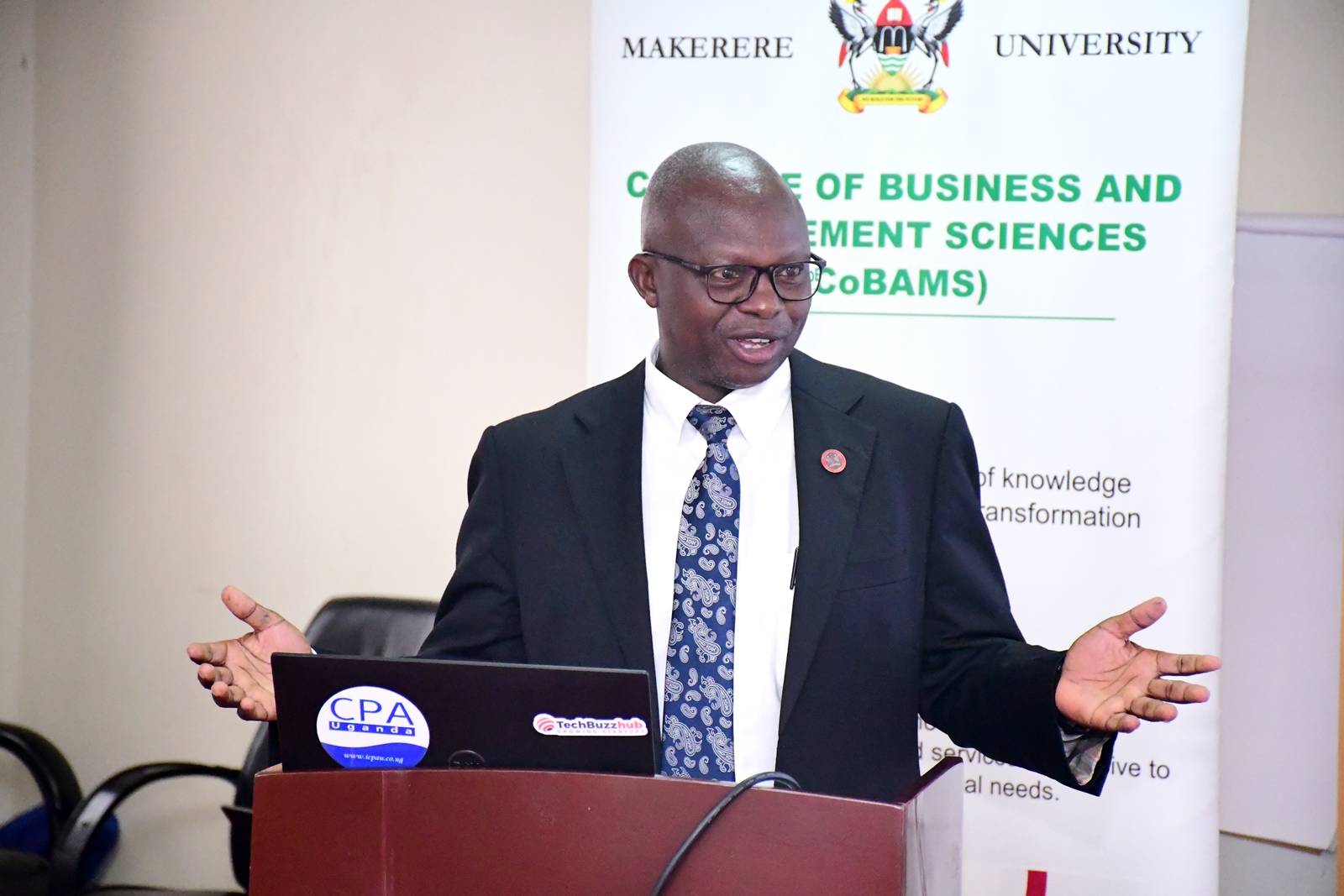
Sharing his lived experience, Associate Prof. James Wokadala, disclosed that a significant number of people entrusted with offices or managerial positions fear to make decisions. “One of key challenges faced by several organisations and universities is the fear by leaders and managers to take bold decisions. To address this challenge, this strategic leadership training conducted by the School of Business has been designed to empower you, with knowledge and skills in strategic decision making,” he stated.
The Coordinator of Partnerships and Collaboration, Dr. Martin Bakundana highlighted the importance of the program in developing leadership skills in a dynamic business environment. He acknowledged the growing relevance of leadership concepts such as transformational and thought leadership.
“We are at a turning point in the world of leadership, and it is essential for Makerere University to prepare its leaders for the challenges ahead,” Dr. Bakundana said. He encouraged participants to engage with the support team throughout the training, reinforcing the collaborative nature of leadership development. Dr. Bakundana is a Lecturer in the Department of Accounting and Finance, School of Business, at the College of Business and Management Sciences.
The remarks from the aforementioned University officials, set the pace for the training sessions. The first day featured two topics: Strategic Leadership Overview and contemporary issues by Associate Prof. Godfrey Akileng, and Driving Strategic Leadership to promote Organizational performance and success by Dr. Sam Eyamu.
Presenting the Strategic Leadership overview and contemporary issues, Associate Prof. Akileng tackled the following: The concept of change and the need to adapt, disruption being the new normal, strategic leadership styles, strategic leadership skills, as well as the principles of strategic leadership.
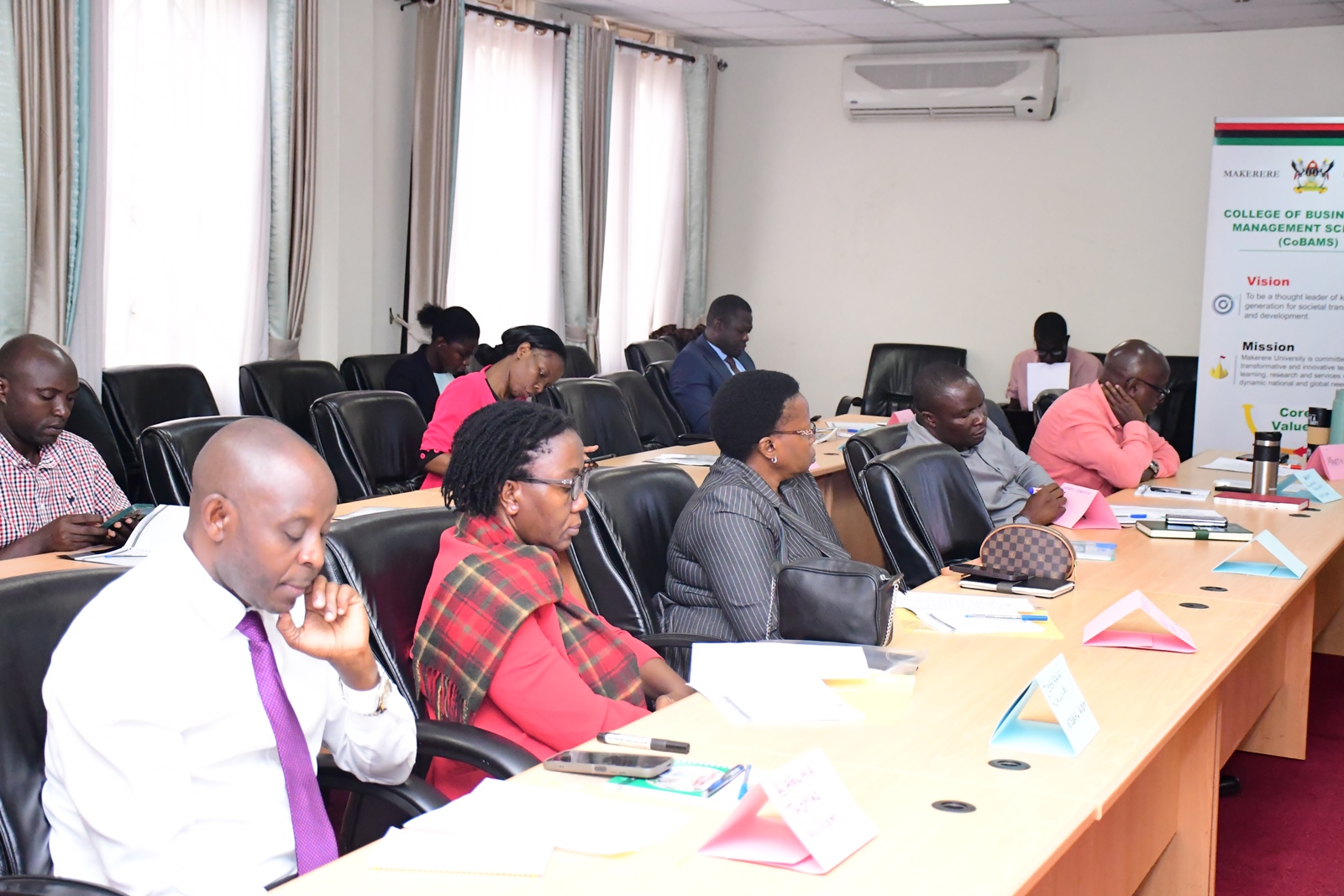
He kicked off his presentation by a powerful quote that enabled the audience to understand and appreciate the current business terrain. “We stand on the brink of technological revolution that will fundamentally alter the way we live, work, relate to one another. In its scale, scope and complexity, the transformation will be unlike anything humankind has experienced before,” Klaus Schwab Founder and Executive Chairman World Economic Forum.
Associate Prof. Akileng stated that change is a fact that is inevitable in our lives, with the landscape in which we work, constantly changing. He mentioned that organizations/institutions as well as Organizational settings do change, which necessitates leaders and staff to adapt to the trends by doing things differently. “I implore the leadership and staff to change the way they do things, if we are to survive,” he said.
Acknowledging that disruption is the new normal, he encouraged the participants to confront VUCA situations through strategic decision making. Coined in the early 2000’s, the military-derived an acronym-VUCA, which stands for Volatility, Uncertainty, Complexity and, Ambiquity.
Cognizant that change is inevitable, and that VUCA situations are prevailing in most organizations and business settings, Associate Prof. Akileng introduced the different strategic leadership styles namely transformative, visionary, transactional, and collaborative. He challenged the participants to apply the best leadership style or a blend of them.
For instance, Associate Prof. Akileng advised the middle and top level managers to utilize the collaborative leadership style when marketing a brilliant idea or an innovation. “You must work with others or behind the scenes to ensure that those in authority understand and support your idea.”
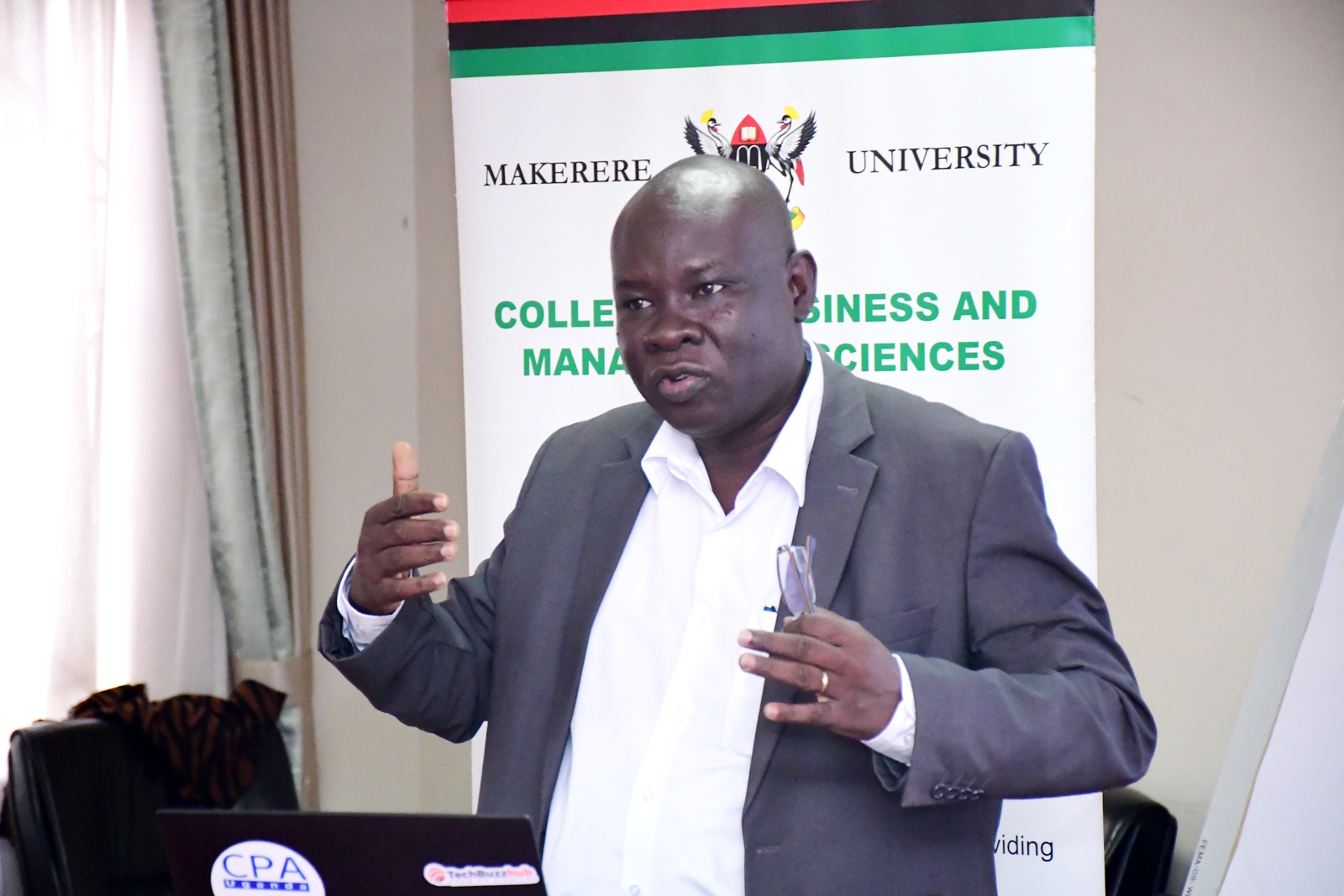
Drawing on lessons from past industrial revolutions, Associate Prof. Akileng emphasized that embracing technological advancements is critical for staying relevant. “History shows us that industries that failed to adapt to new technologies inevitably failed to compete,” he remarked.
Specific to education, he explained that COVID-19 disrupted teaching and learning. He added that most of the Universities in Africa that were pre-dominantly delivering lectures through physical interaction had to change and adapt to the terms and conditions dictated by the new normal. Universities embraced blended learning in order to overcome the disruption that threatened their comfort zones and preferred way of doing things.
He cited Makerere University, which deployed a blend of transformative, participant, and collaborative strategic leadership styles to rejuvenate its online learning systems/platforms. The Office of the Deputy Vice Chancellor (Academic Affairs), the College of Education and External Studies through its Institute of Open, Distance and e-Learning (IODel) worked with Colleges and the Directorate of ICT Support services (DICTS) to bring on board academic staff.
The Dean, School of Business indicated that the new normal in university education involves integration of online teaching, digital pedagogies, artificial intelligence (AI), Virtual Reality (VR), and Augmented Reality (AR) in teaching and learning, research and community engagements.
He called upon the participants to take into account the following strategic leadership skills: Foresight, curiosity, decisiveness, active listening, communication and diplomacy. He stressed that active listening is a key skill for a strategic leader.
Tackling the principles of Strategic leadership, the Dean-School of Business pointed out that strategic leaders are always on the top. He added that strategic leaders are innovative individuals, who are always pushing through brilliant ideas.
He notified the participants that strategic leaders take on the format of an eagle. “You must have a great vision with ability to navigate stormy turbulence, exhibit fearlessness, take the initiative, and have a high sense of self determination.”
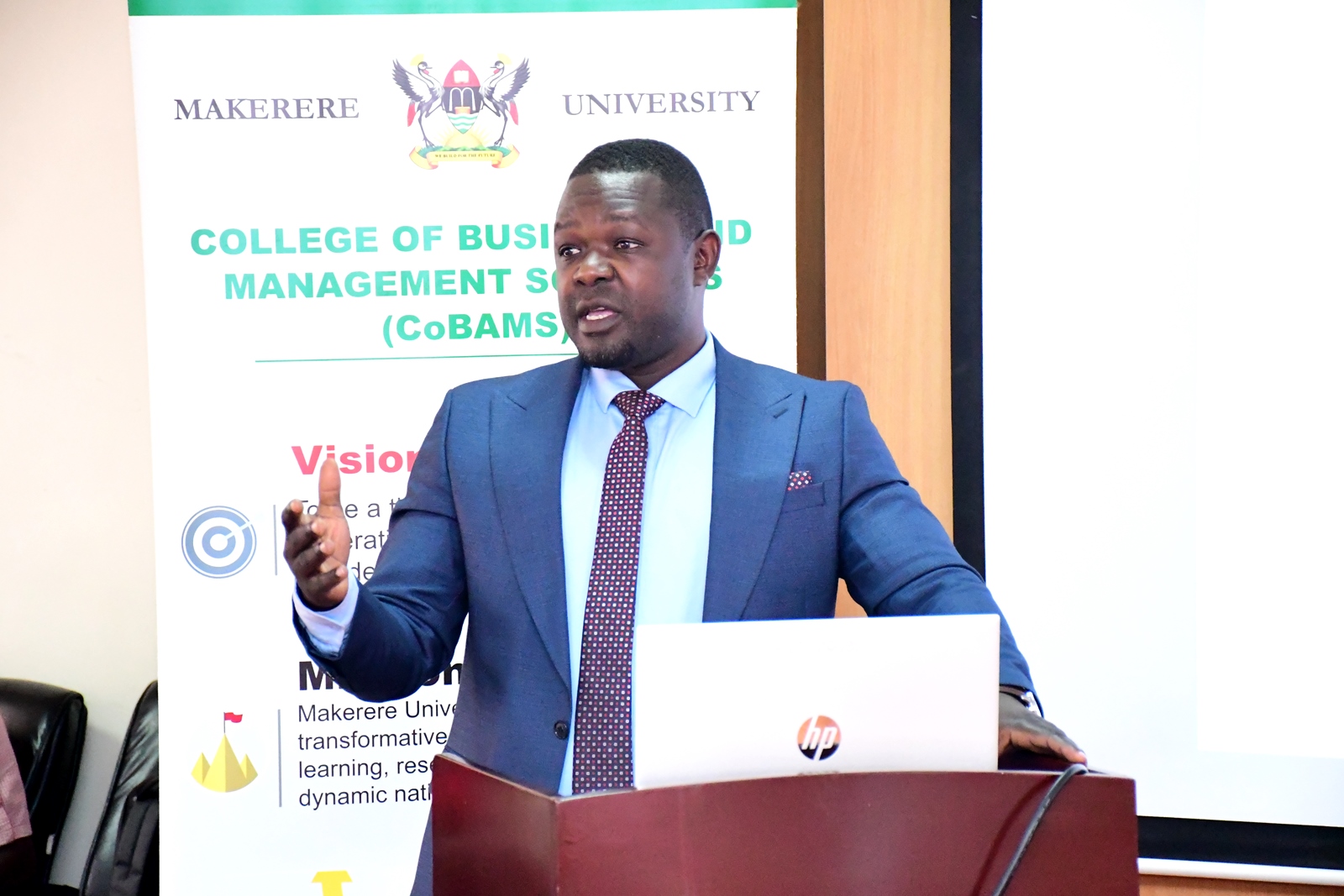
Presenting to the participants, Dr. Sam Eyamu, from School of Entrepreneurship and Management at Kyambogo University, provided insights into strategic leadership with an emphasis on organizational performance. He defined leadership as the ability to create a lasting legacy through collaboration. “Effective leadership inspires and unites teams, ensuring that their collective efforts have a long-term impact,” he said.
Dr. Eyamu guided that strategic leaders must work with others, be able to influence, and must create change. He articulated that strategic leaders should embrace Artificial Intelligence (AI). He advised university leaders and staff to accept that AI is the new normal, and work together to come up with policies and approaches on the integration of AI in the university systems and processes.
He added that strategic leaders should be resilient with ability to survive and lead the team to the desired goal. He called upon the participants to set goals, use key performance indicators, come up with work plans, score cards, and among other methods that measure performance. He introduced several tools designed to align strategy with performance, including the Balanced Scorecard, Objectives and Key Results (OKRs). Dr. Eyamu disclosed that celebrating small successes can accumulate into significant organizational momentum.
Dr. Eyamu highlighted two distinct leadership approaches: Rapid Fire Leadership, which encourages trying multiple strategies quickly and the Sniper Leadership that focuses on a more deliberate and calculated approach.
He argued that both approaches are valid depending on the available resources, with resilience and persistence being key to success in either model. He also emphasized the importance of clear strategic direction, ensuring that all team members understand their roles in achieving organizational goals.
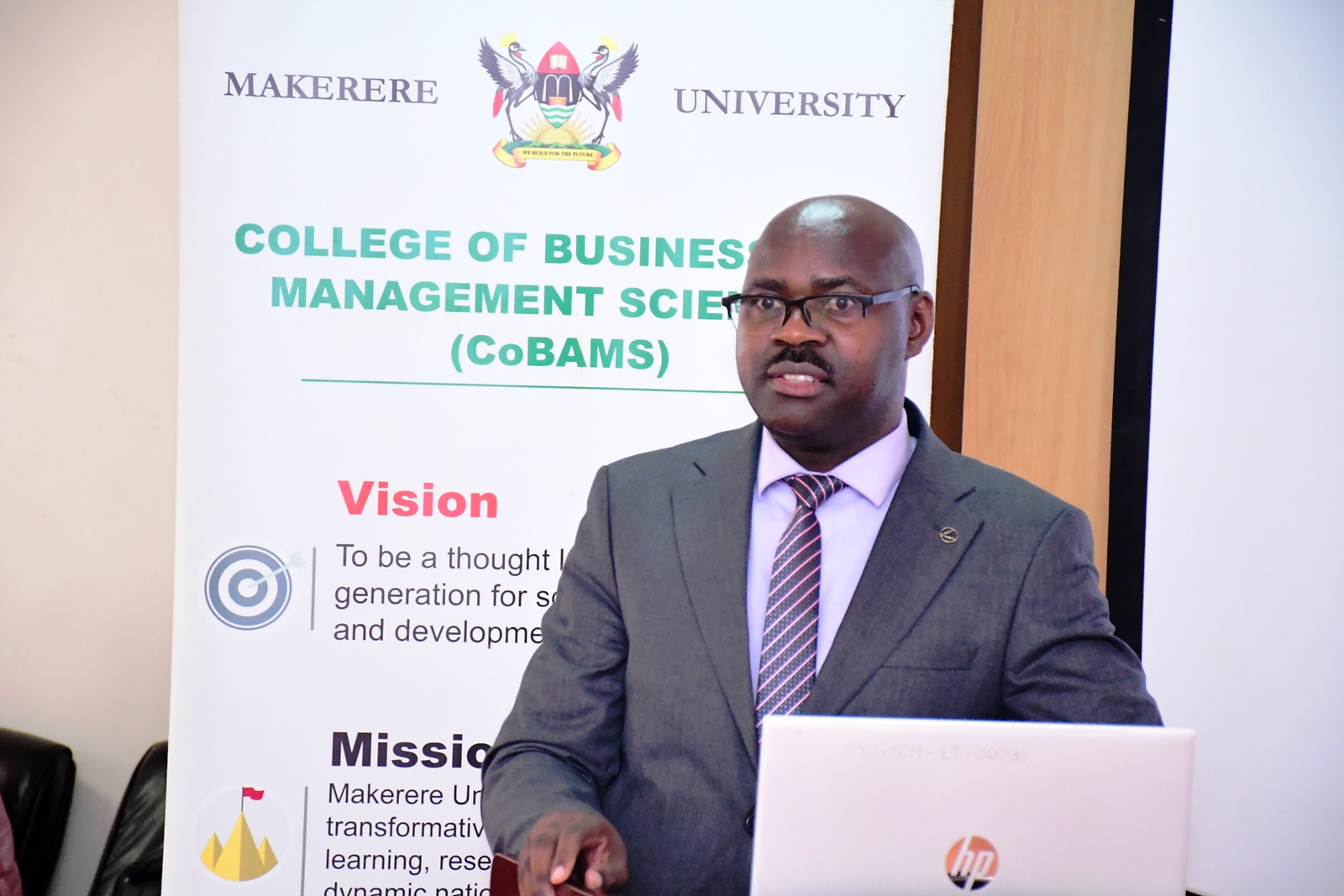
Additionally, Dr. Eyamu stressed the critical importance of performance measurement tools, such as Key Performance Indicators (KPIs), work plans, and the Balanced Scorecard, to track progress toward strategic goals. He introduced performance dashboards, which provide real-time data, and benchmarking, which allows organizations to compare their performance with industry best practices.
Dr. Eyamu introduced the Triple Bottom Line (TBL) framework, which balances social impact, environmental sustainability, and financial performance. He said that organizations must take a holistic approach to success, considering more than just the financial outcomes.
Presenting the practical tips for success, he encouraged the participants to; adopt a performance measurement framework and tool, foster and reward a culture of accountability and results, lead by example, be transparent by ensuring a consensual decision-making process, and empower team members through delegation of duties and trusting them to deliver.
The first day of the Strategic Leadership Training ignited the strategic leadership potential of the participants, which involves getting out of the comfort and safe zone, to champion the transformation at the institutional or Unit levels. The University leaders and participants in general, were encouraged to take charge by being alert, studying the times and trends, as well as coming up with innovations and strategies to create a positive difference.
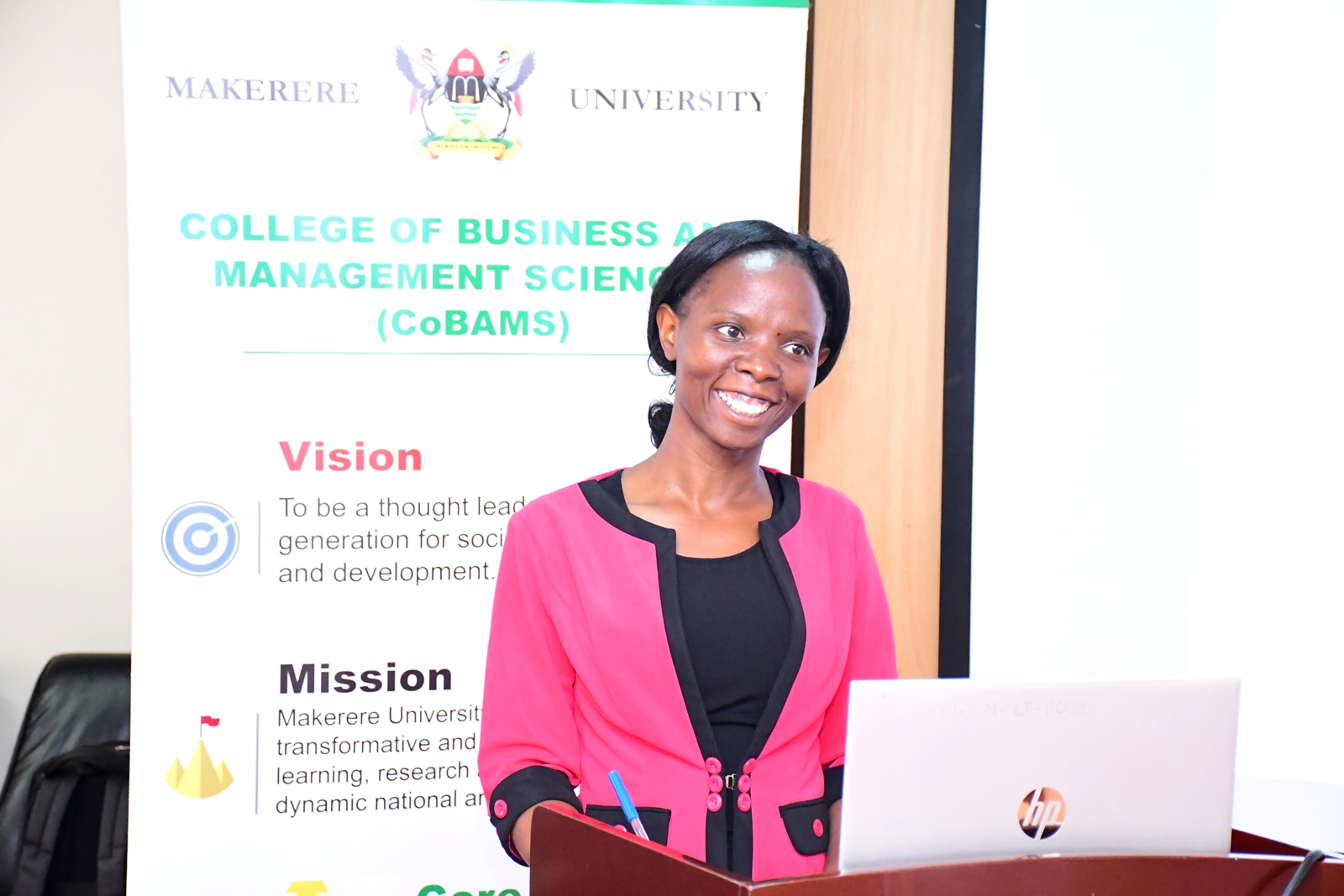
The Strategic Leadership Training was moderated by Dr. Martin Bakundana-Coordinator of Partnerships and Collaboration assisted by Ms. Ritah Namisango-Principal Communication Officer.
Trending
-

 General2 weeks ago
General2 weeks agoRe-advert: Admission to Undergraduate Programmes 2025/2026
-

 General1 week ago
General1 week agoRe-Advert for Applications for Diploma and Certificate Training
-

 General5 days ago
General5 days agoMakerere University Fees Waiver for 40 First Year Female Students 2025/2026
-

 General2 weeks ago
General2 weeks agoPress Statement on Ranking
-

 Health1 week ago
Health1 week agoCall for Applications: Responsible Conduct of Research (RCR) Training Course
